The next showing of the Riverwoods Film is at Lynmouth National Park Centre. It will be followed by a presentation by myself that will include a focus upon the River East Lyn and its declining salmon population.
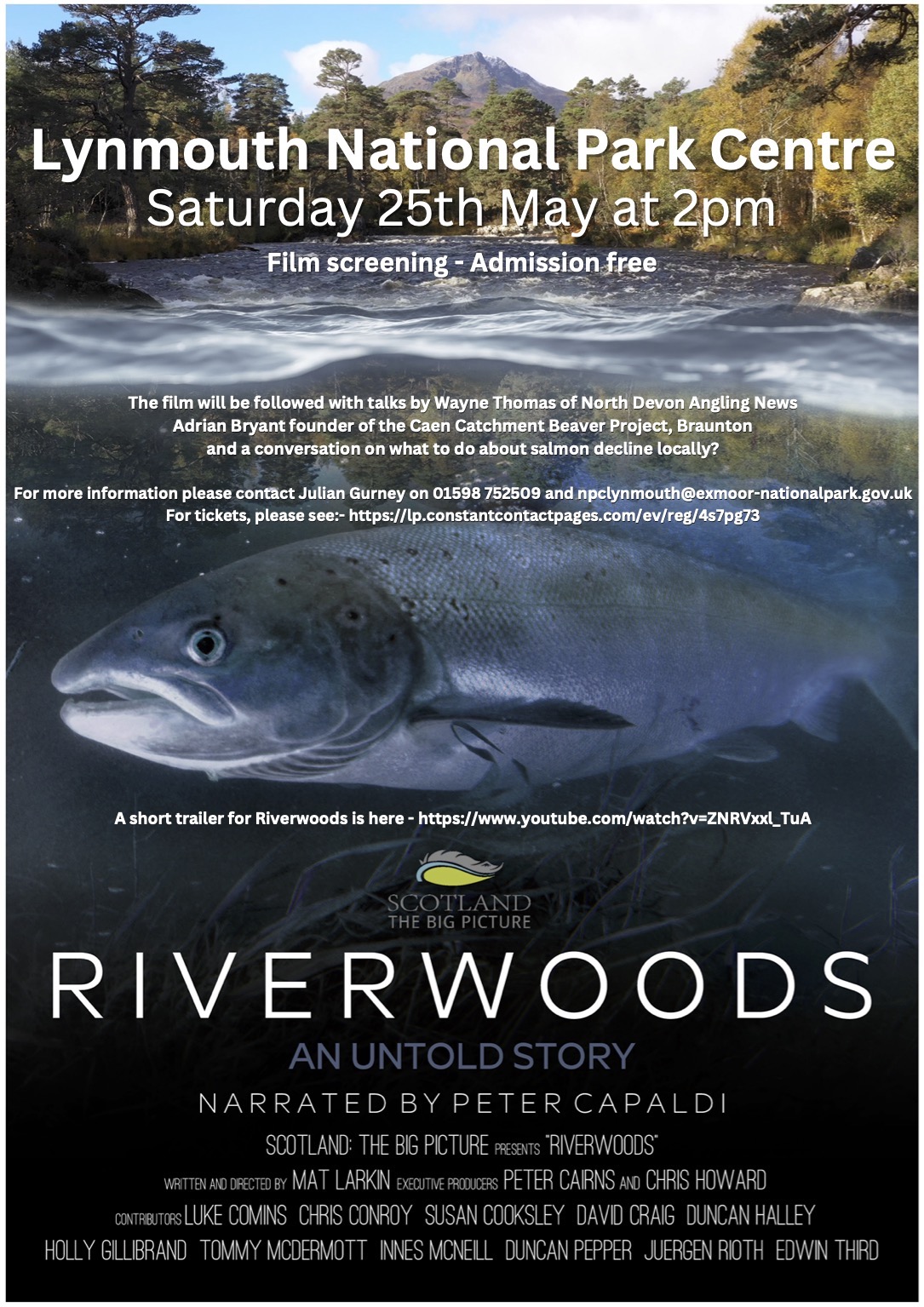

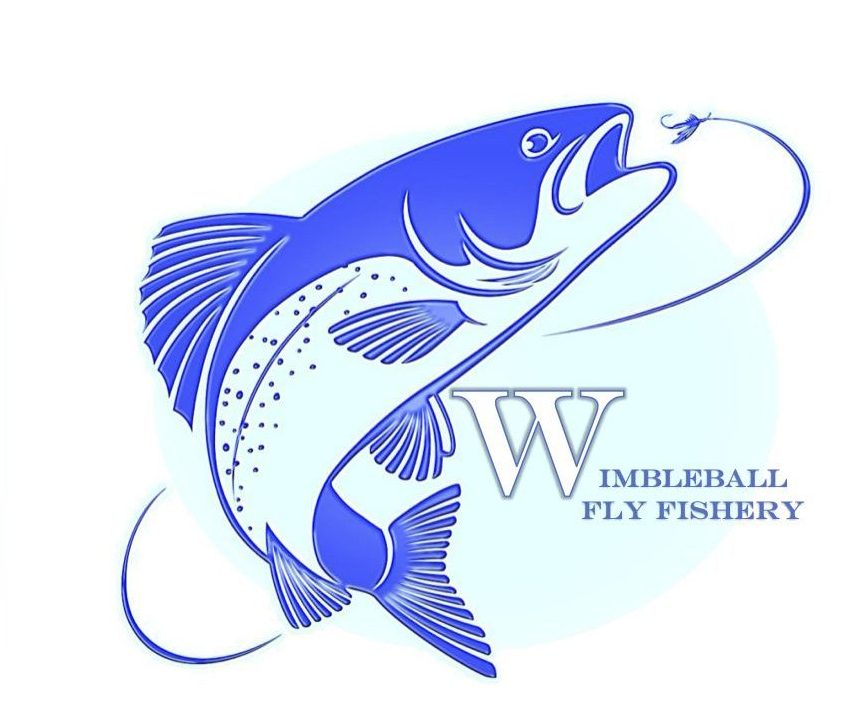
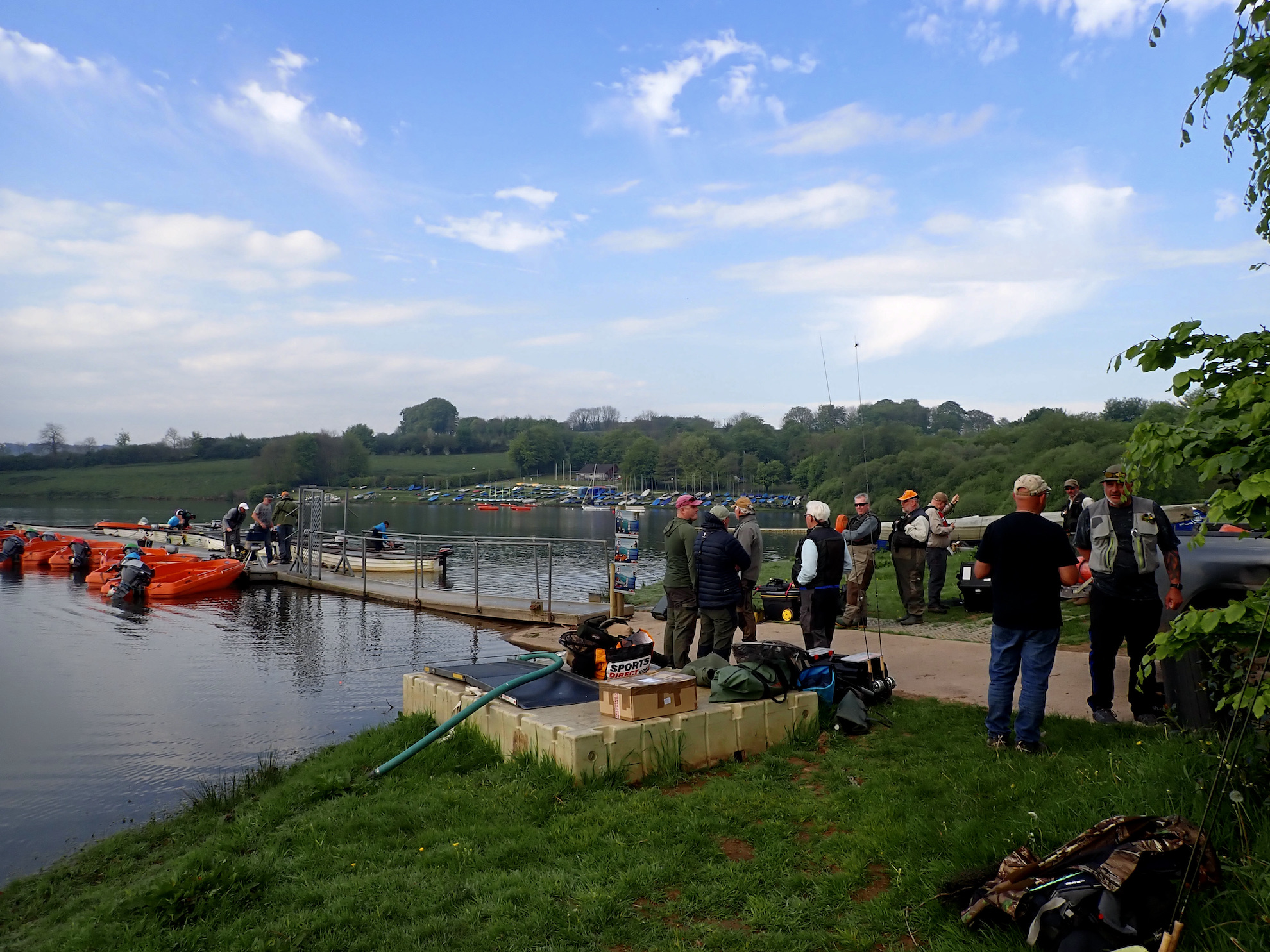
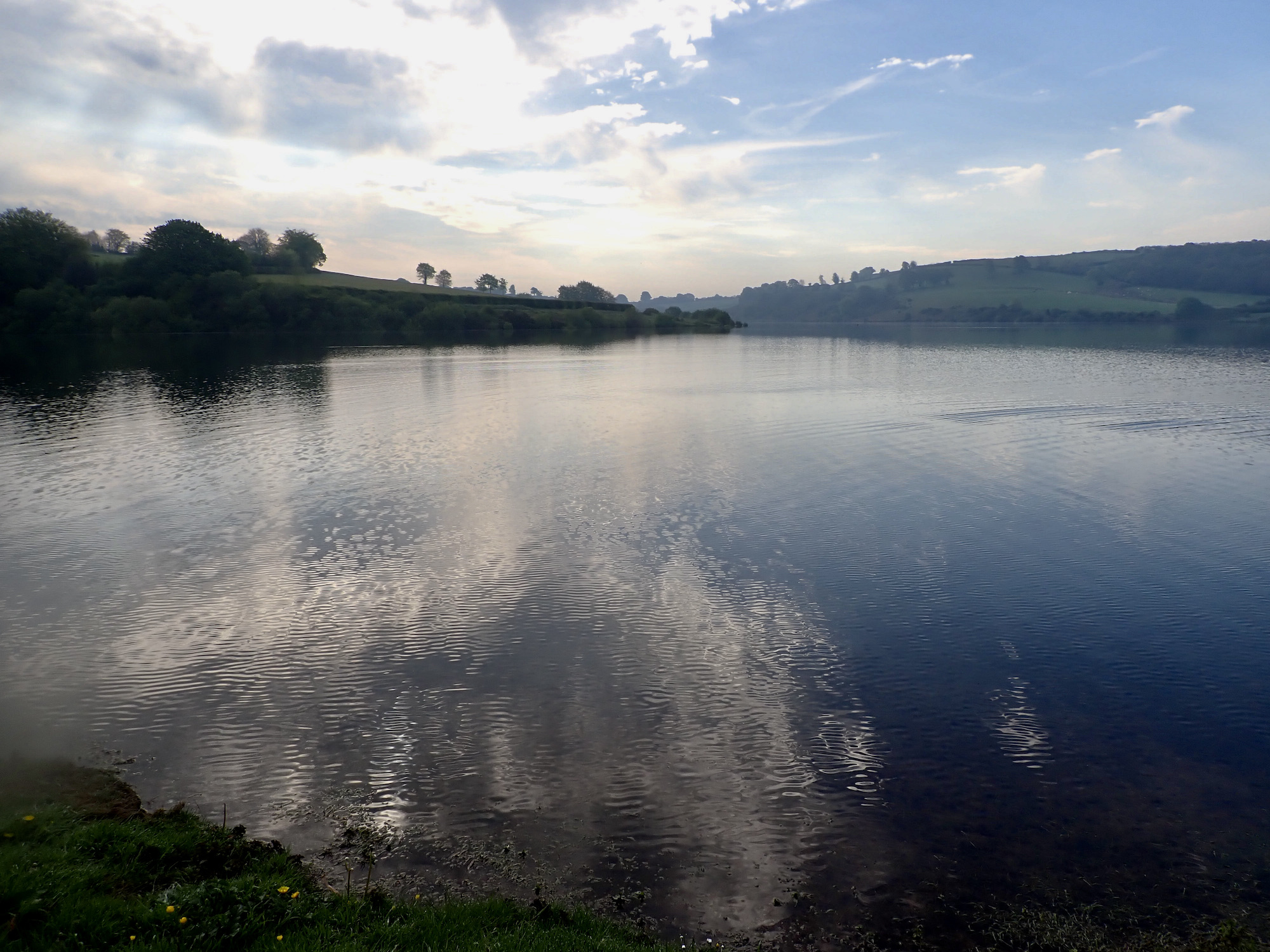
Calm waters greeted Matt Kingdom, myself and other competitors as we assembled for the 2024 Fastmail Pairs Match at Wimbleball Reservoir. A day out on Wimbleball with good friend and experienced Fly angler Matt is always a joy. It’s also a good idea to pair up with an England Team member.
There was a buzz of anticipation in the air as lines were threaded through the rod rings and favoured patterns tied to the tippets. Some had practiced the day before and had an idea of where to head. I was told that there had been a good hatch of bright blobs the previous day and that this could be a wise fly choice!
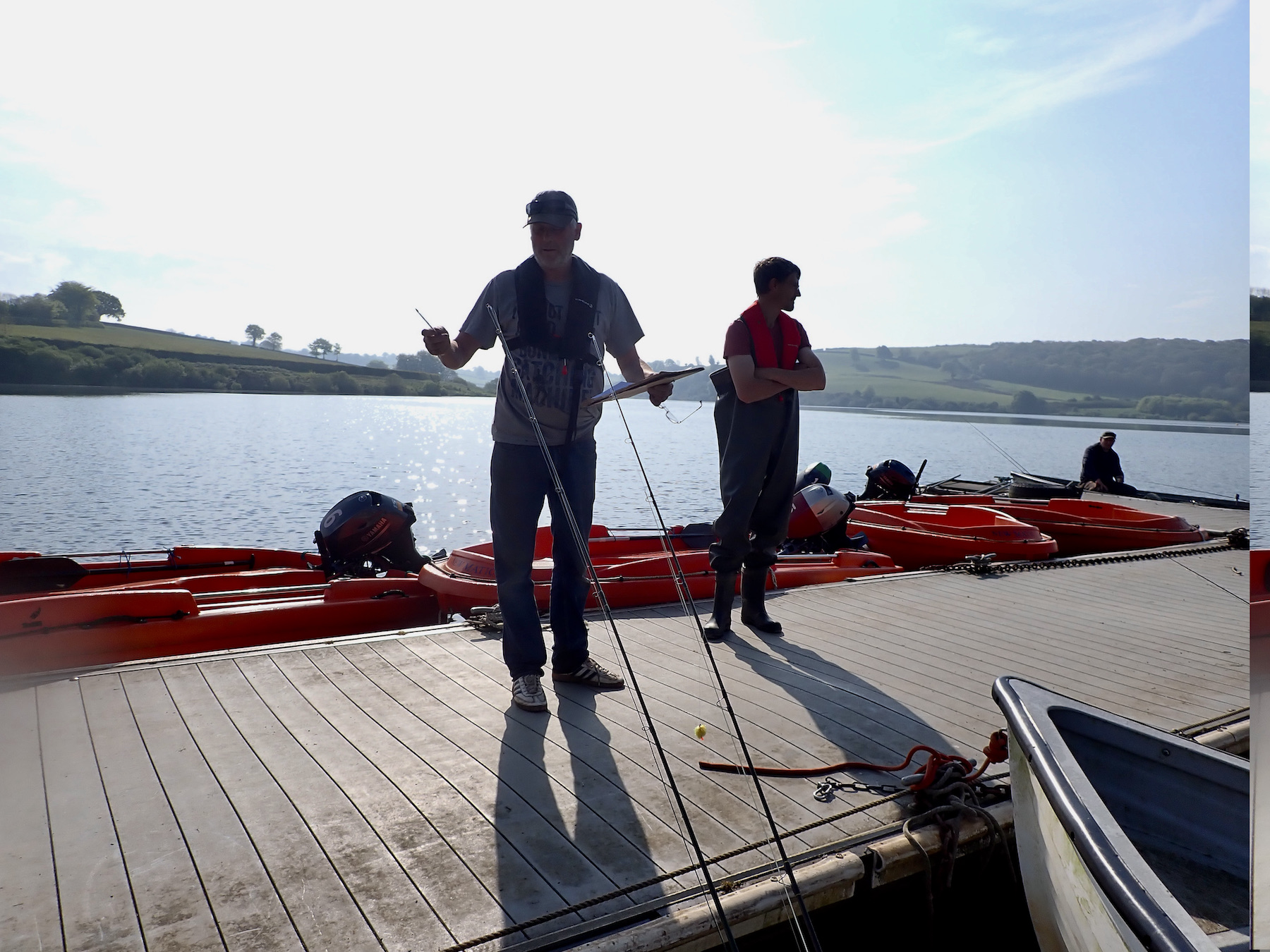
Shortly after 9:00am Mark Underhill gave a briefing to all competitors with rules explained before giving the go ahead to depart and go fishing.
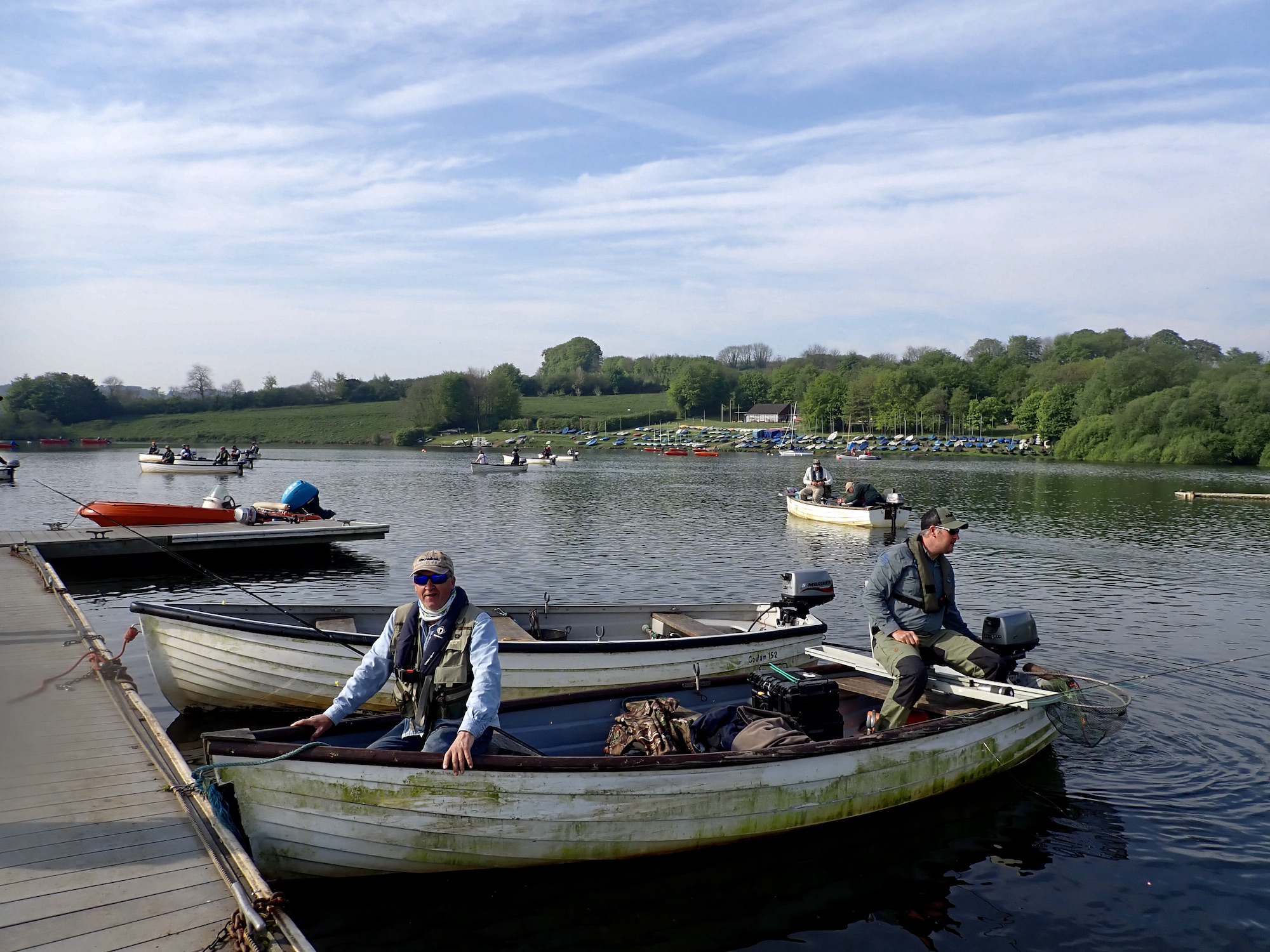
The start off reminded me of a slightly shambolic Grand National Start as competitors boats milled around before the starting signal was given. Competitors set off and Matt and I paused to see where everyone was heading. One thing I quickly learned from Matt is that observation is a key factor in competitive angling.
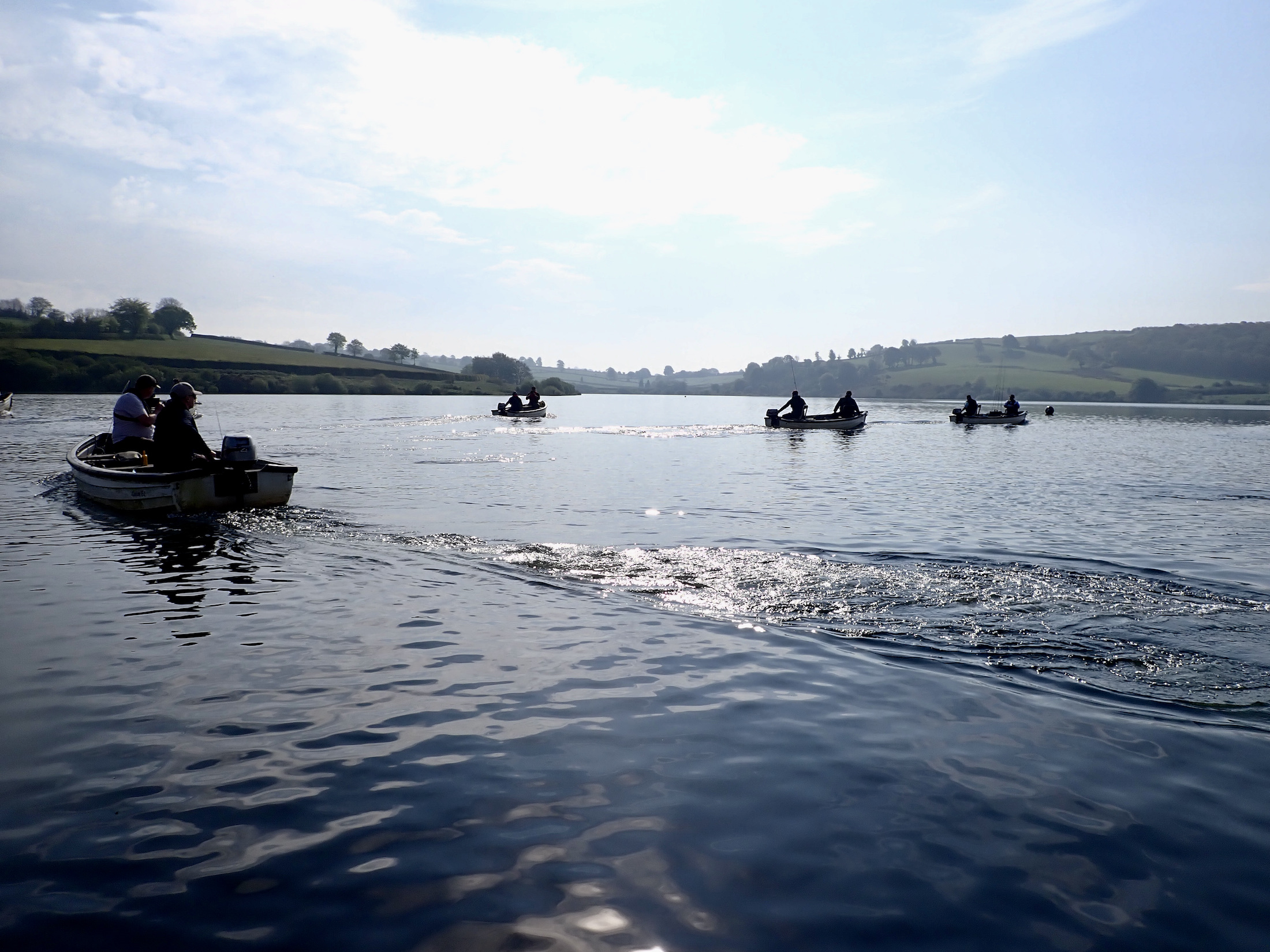
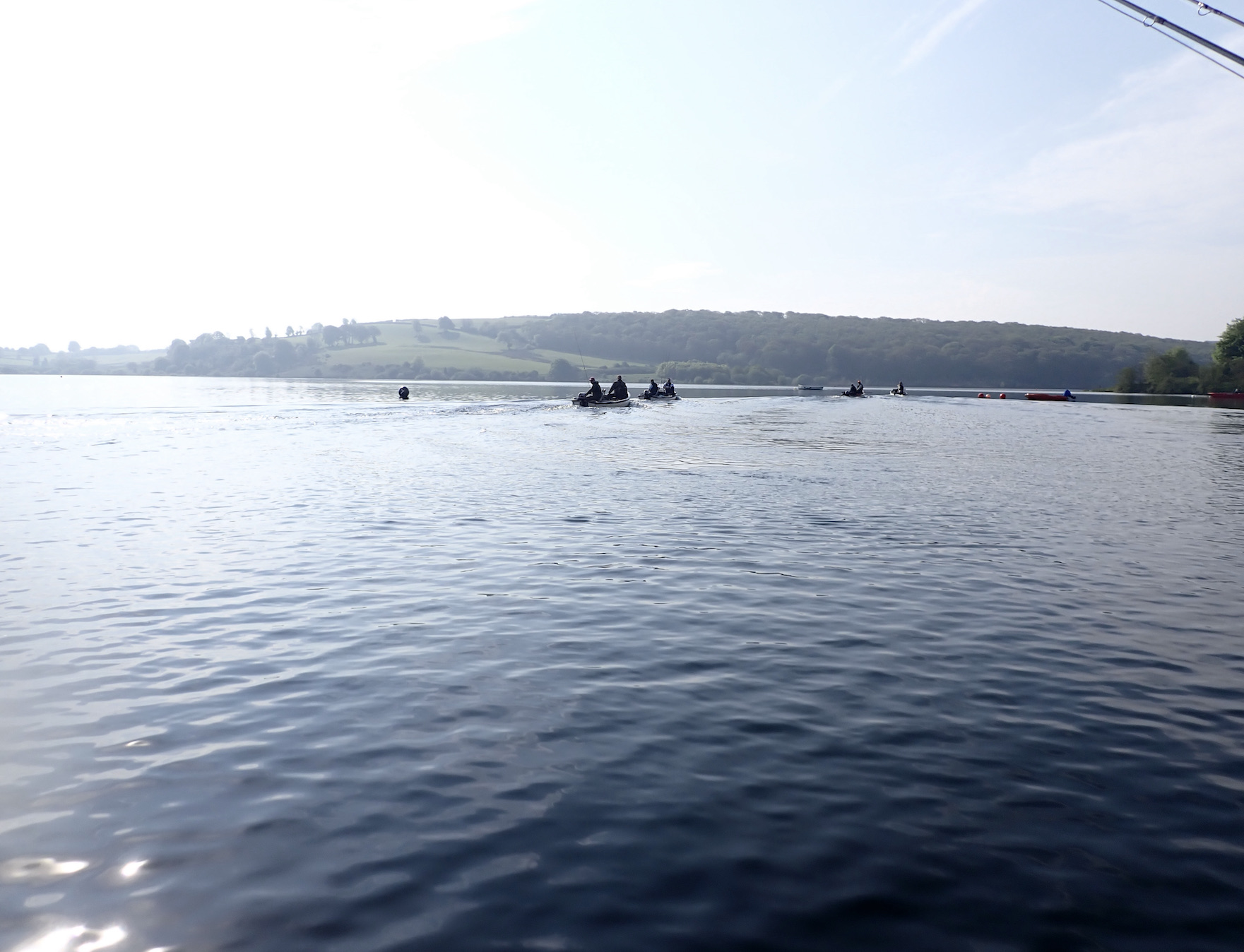
We headed straight for Cowmoor Bay an area that had been producing a few fish and an area that we had both done well in during previous visits.
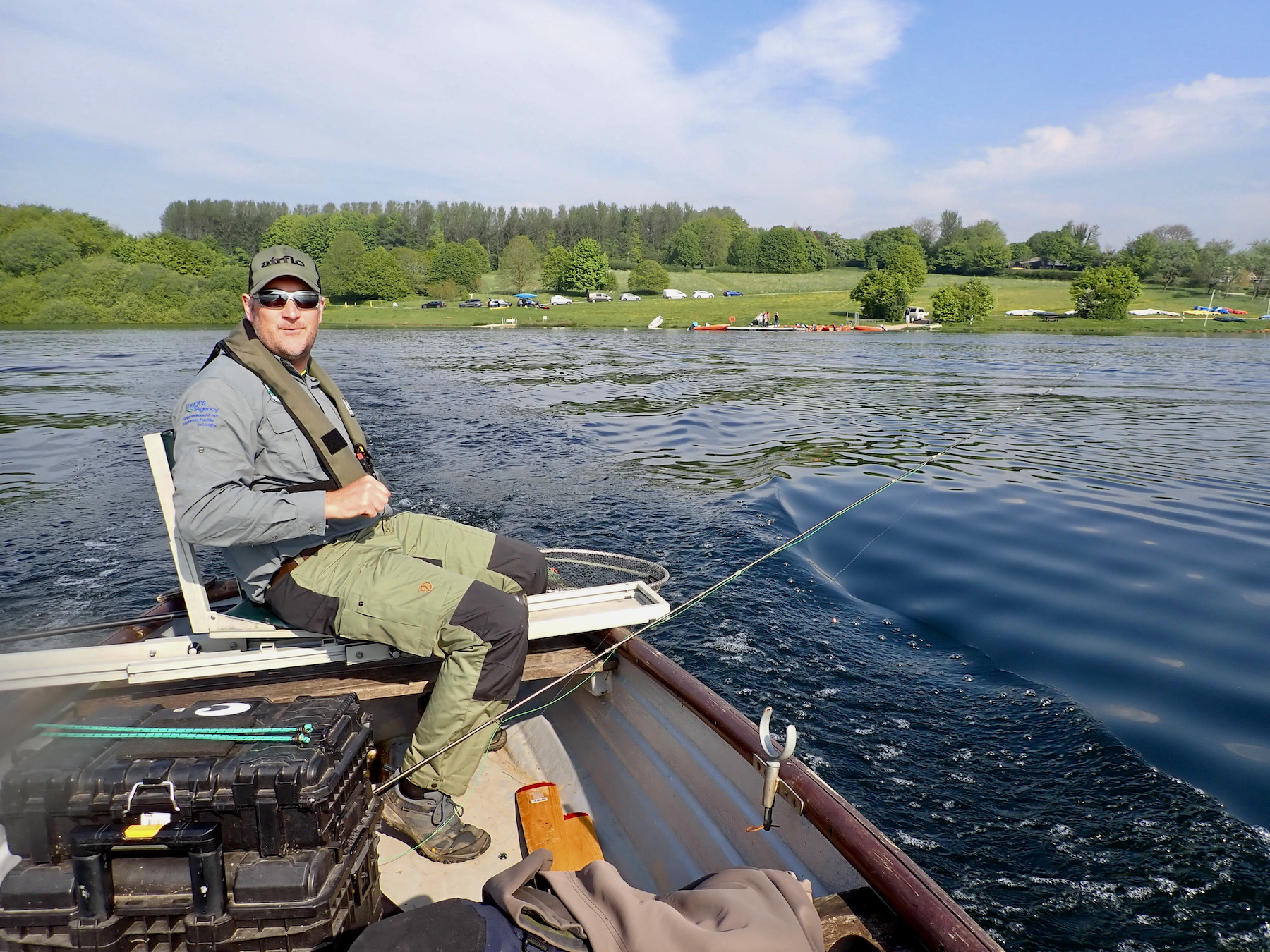
It was a beautiful morning to be on the water with warm sunshine and a very light cyclonic breeze. The wooded banks and gently rolling arable land a delightful backdrop on this May morning. A time of year when the English countryside is at its most beguiling.
The occasional fish was rising but we soon realised that we had made a wrong choice when we saw a boat heading back to the pontoons at 10:30am, presumably with their ten fish bag complete.
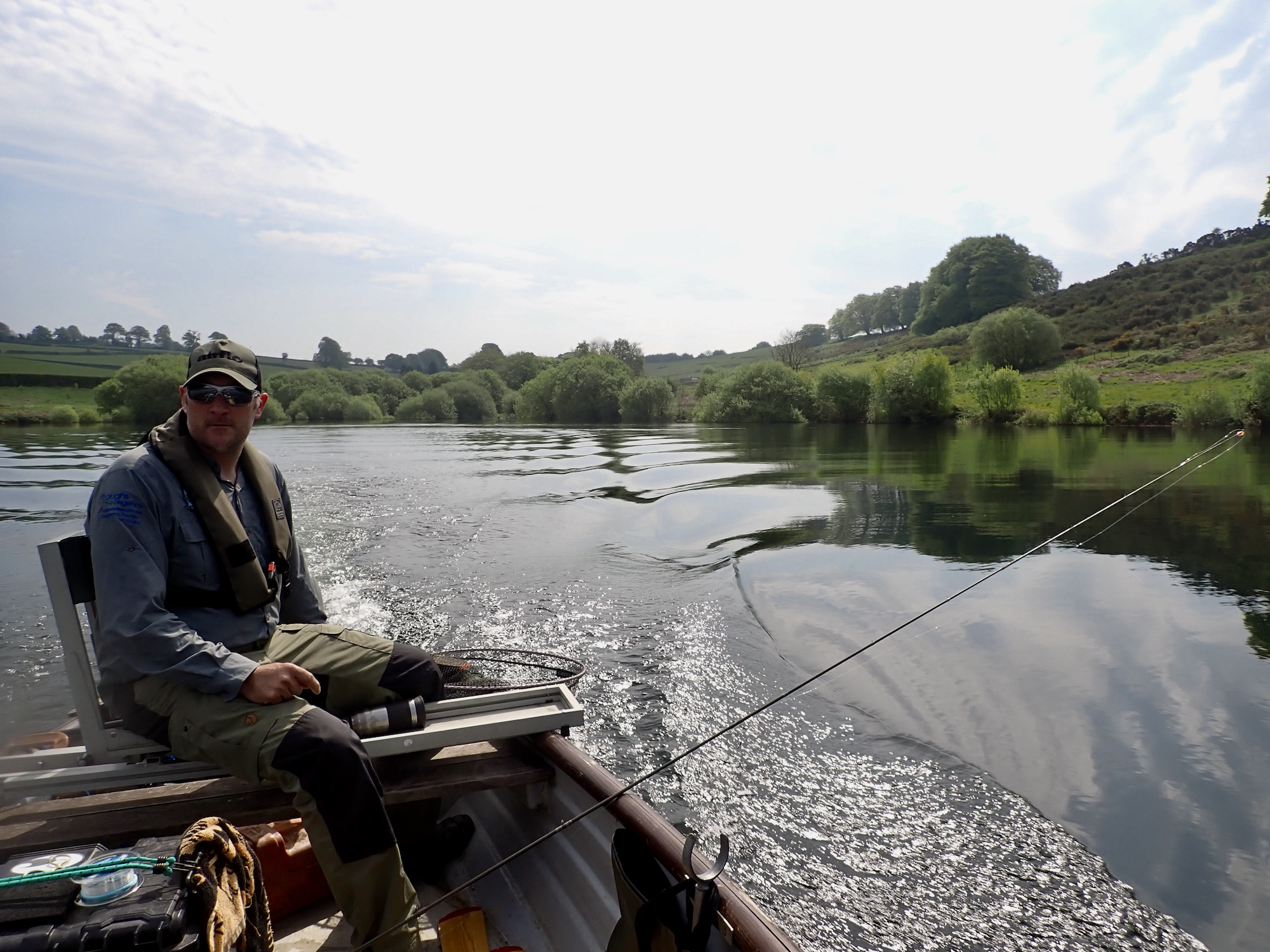
A change of area was required as by this time Matt had caught one nice rainbow and I had had one follow.
We moved to the Dam end of the lake where most competitors seemed to be concentrating their efforts. We drifted the deep water in the gentle breeze. My line zipped tight and I was into a hard fighting full tailed rainbow a moment that was given added value when that evocative sound of the cuckoo drifted across the lake.
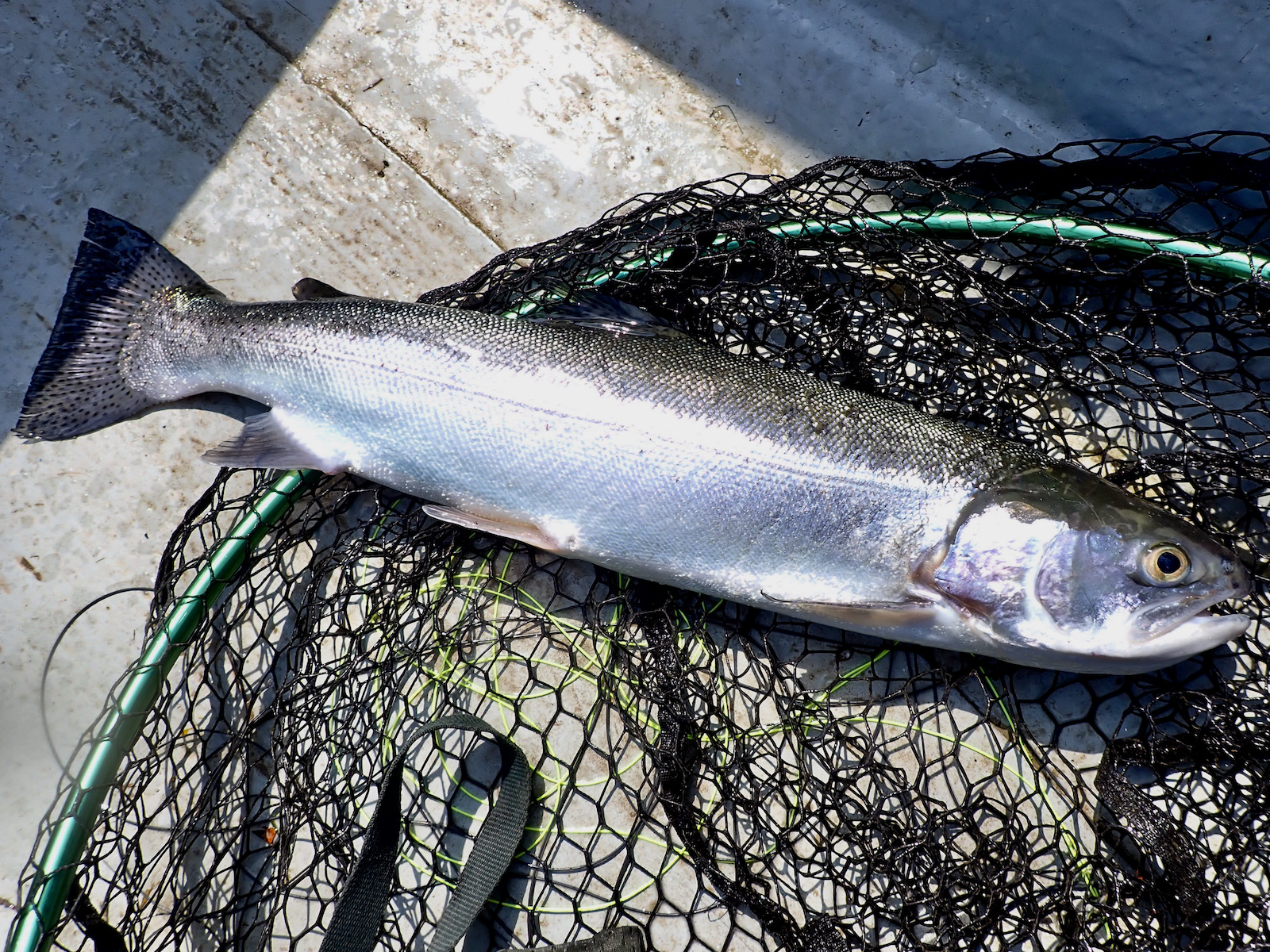
Over the following two and a half hours we picked up fish on most drifts with Matt’ s competitive experience undoubtedly scoring for us as we fished hard Matt ending with seven rainbows to my three.
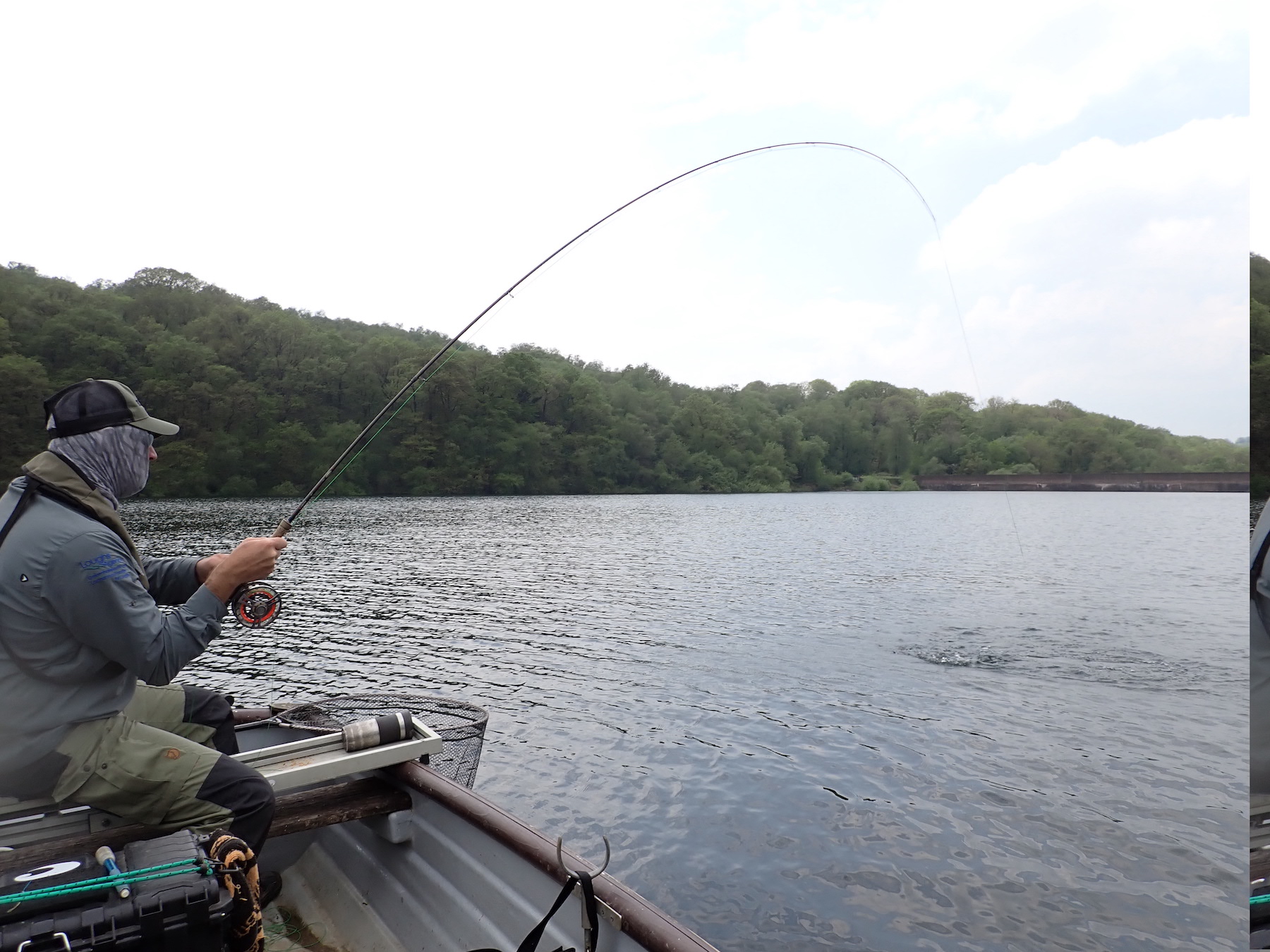
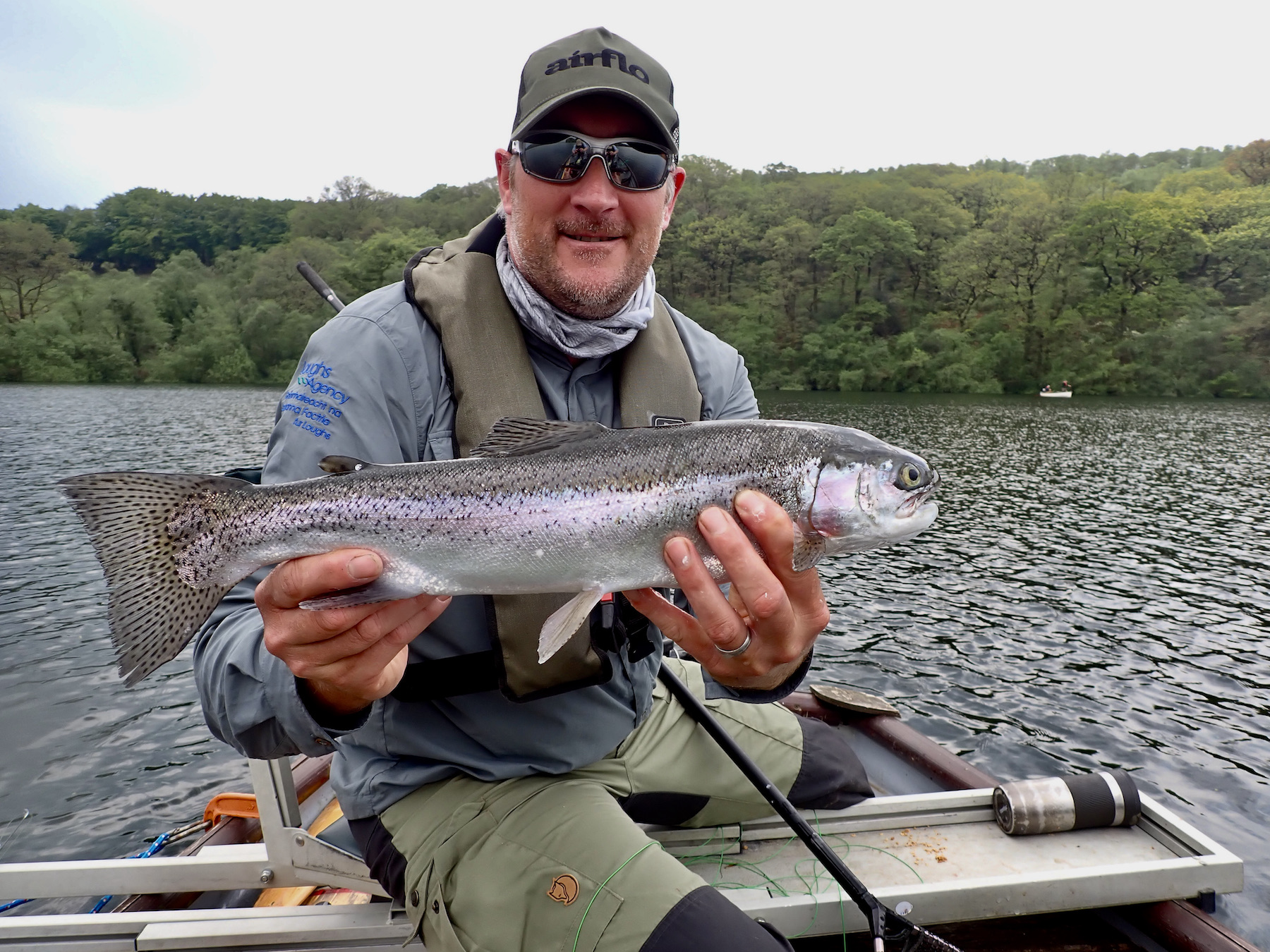
We headed back to the pontoon with our trout and weighed in to record 32lb 8oz inclusive of our time bonus.
Despite being close to four hours later than the winning pair at completing our bag it was pleasing to end up in third place.
It had been a very enjoyable day. Many thanks to fishery manager Mark Underhill and Jeff Pearce from Snowbee who worked very hard on the day ensuring that all went to plan. Thank you to Phil Dixon for organising the day and providing prizes and goodie bags.
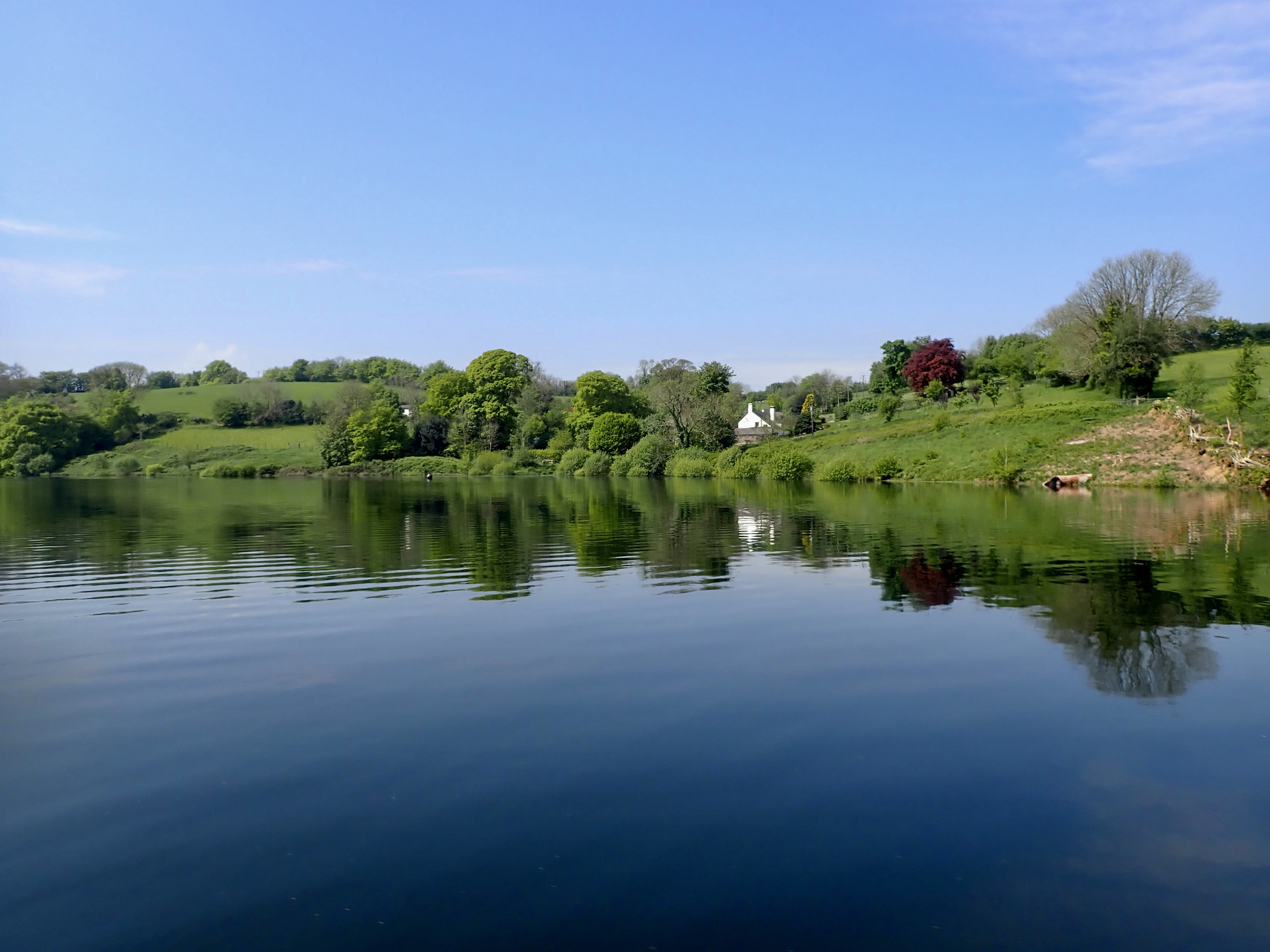
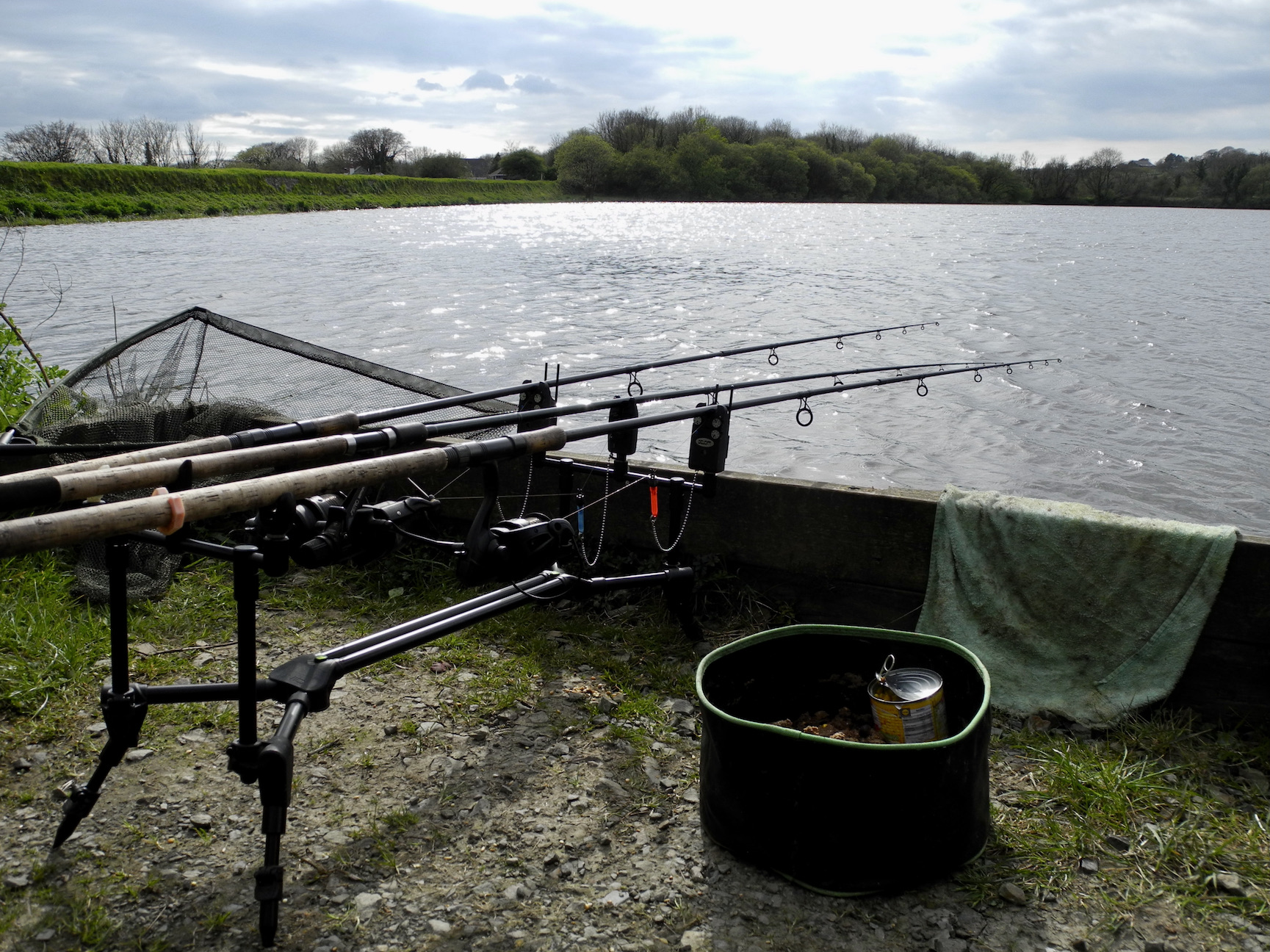 Strange game this fishing lark and angler’s fishy targets that vary considerably. Bream are a species that are loved by some and loathed by others. My own feelings on bream go back a long way and they are a fish I have mixed feelings for rather like eels. Small skimmers are slimy creatures only worth catching during match’s and a complete nuisance when targeting bigger fish. Eels are much the same with slimy bootlaces tangling the tackle whilst snatching bait offered to a more worthy specimen.
Strange game this fishing lark and angler’s fishy targets that vary considerably. Bream are a species that are loved by some and loathed by others. My own feelings on bream go back a long way and they are a fish I have mixed feelings for rather like eels. Small skimmers are slimy creatures only worth catching during match’s and a complete nuisance when targeting bigger fish. Eels are much the same with slimy bootlaces tangling the tackle whilst snatching bait offered to a more worthy specimen.
Big eels and big bream are both worthy targets that hold a spell over a dedicated hard core of specimen anglers. The dedicated tunnel visioned carp angler view both species as vermin cursing at the hooking of either species regardless of its specimen proportions. A bream or eel that would be a fish of a lifetime to some anglers is tossed back without weighing by many carp fanatics.
Big bream have eluded me over the years and they are not a species I have targeted to any great extent. I have caught bream to over 8lb from Hatchett Pond in Hampshire under the guidance of a good friend twenty five years or so ago and I once tempted a 7lb bream from the tidal Exe whilst fishing for carp.
Recent seasons I have heard many reports of the big bream that reside in Lower Tamar Lake. At first I tended to treat these reports from carp anglers with a degree of scepticism when they told me of bream well over ten pounds that they had caught but not bothered to weigh.
My sceptical nature on this occasion proved to be wrong as more pictures started to appear of big bream that had been weighed several of them well over ten pounds.
These specimen bream were on my list of target species yet time as always seems an issue as I spend my time pursuing many fish and balancing this with family, home life and a little work.
My first trip after bream was back in May 2021 when I enjoyed a session banking one nuisance carp of 19lb 4oz! I jest for in truth I am pleased to catch anything that bends the rod and a 19lb carp is far better than a blank.
The bream remained on my bucket list but for one reason or another I didn’t get back to them until earlier this year when I persuaded my good friend Bruce Elson to join me at the venue. Bruce had already achieved his target of a double figure bream after just two trips.
The night before the trip I picked up a couple of books from my bookshelf and flicked through the pages looking for a few nuggets of info regarding specimen bream fishing. Renowned specimen anglers talked of long sessions and many blanks chasing specimen bream. Judging by the efforts of these anglers and the results I was hearing about it was obvious that Lower Tamar is an exceptional venue for specimen bream.
In late April Bruce and I lugged our barrows full of gear to what had proved productive swims on the lake. We talked tactics and I noted Bruce’s approach. We had pulled straws to select swims and Bruce assured me that my swim was a cracker as was his.
Last year I had fished Roadford Reservoir during the carp removal project and purchased a sack of pigeon conditioner a renowned particle bait for carp. I had cooked this up and added a tin of sweetcorn and a few pellets. I spodded the best part of a bucketful out the suggested number of wraps. Strange how carp anglers have now created a language of their own. Twenty years ago I would have looked puzzled if someone told me they were fishing at 15 wraps.
In old terms this was about 60 metres.
This spodding out of bait is a bit tedious and took close to an hour. We had arrived shortly after midday and it was late afternoon before the baits were in place and the bivvy assembled. Time to make a cup of coffee and sit back.
We didn’t expect much action until after dark so when Bruce called me over to his swim well before darkness I was surprised. I stood waiting at his side as he reeled in a fish that was undoubtedly a big bream. The sight of the bronze flanks as it appeared were certainly impressive. At 9lb 5oz it was an encouraging start.
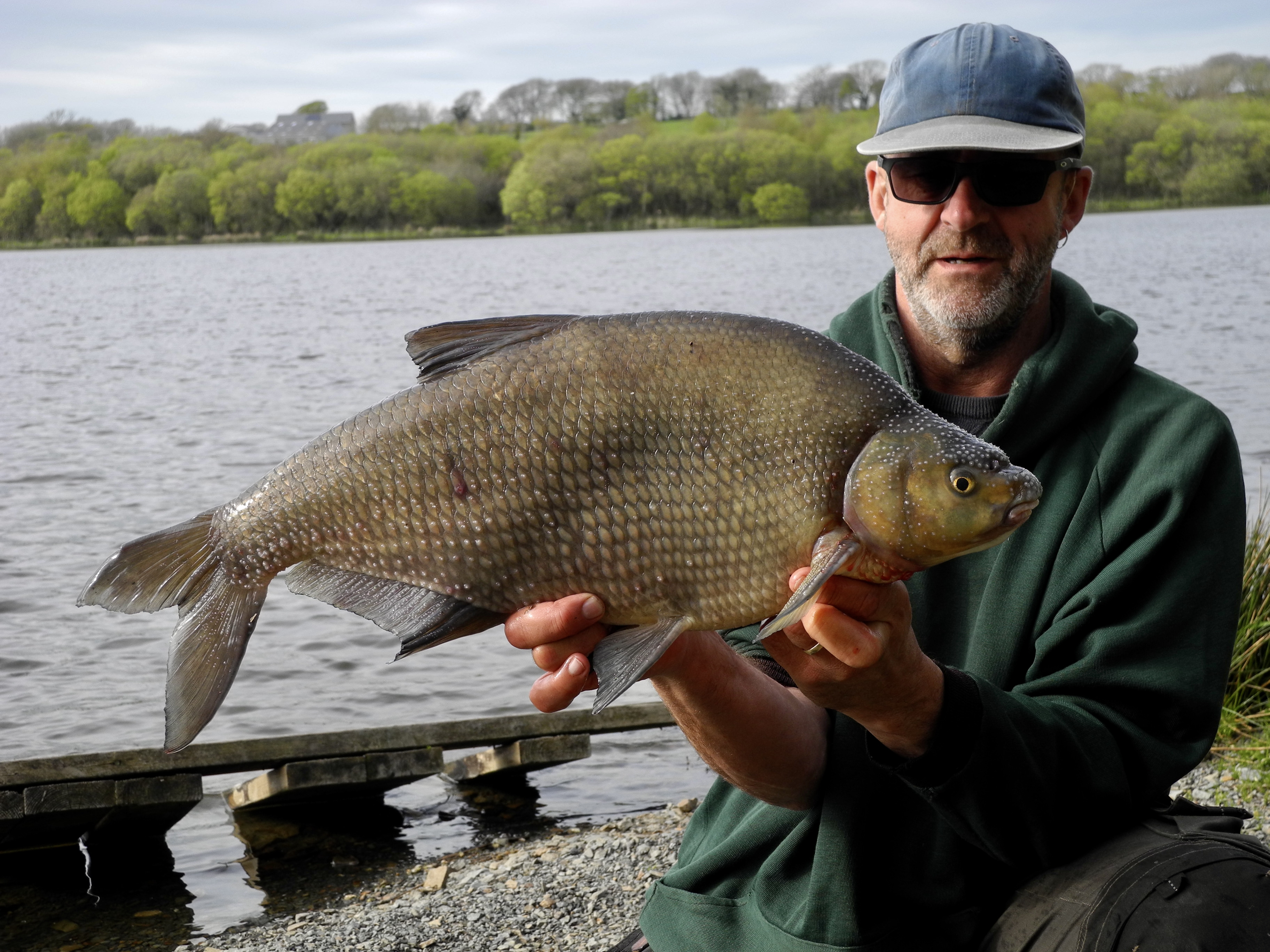
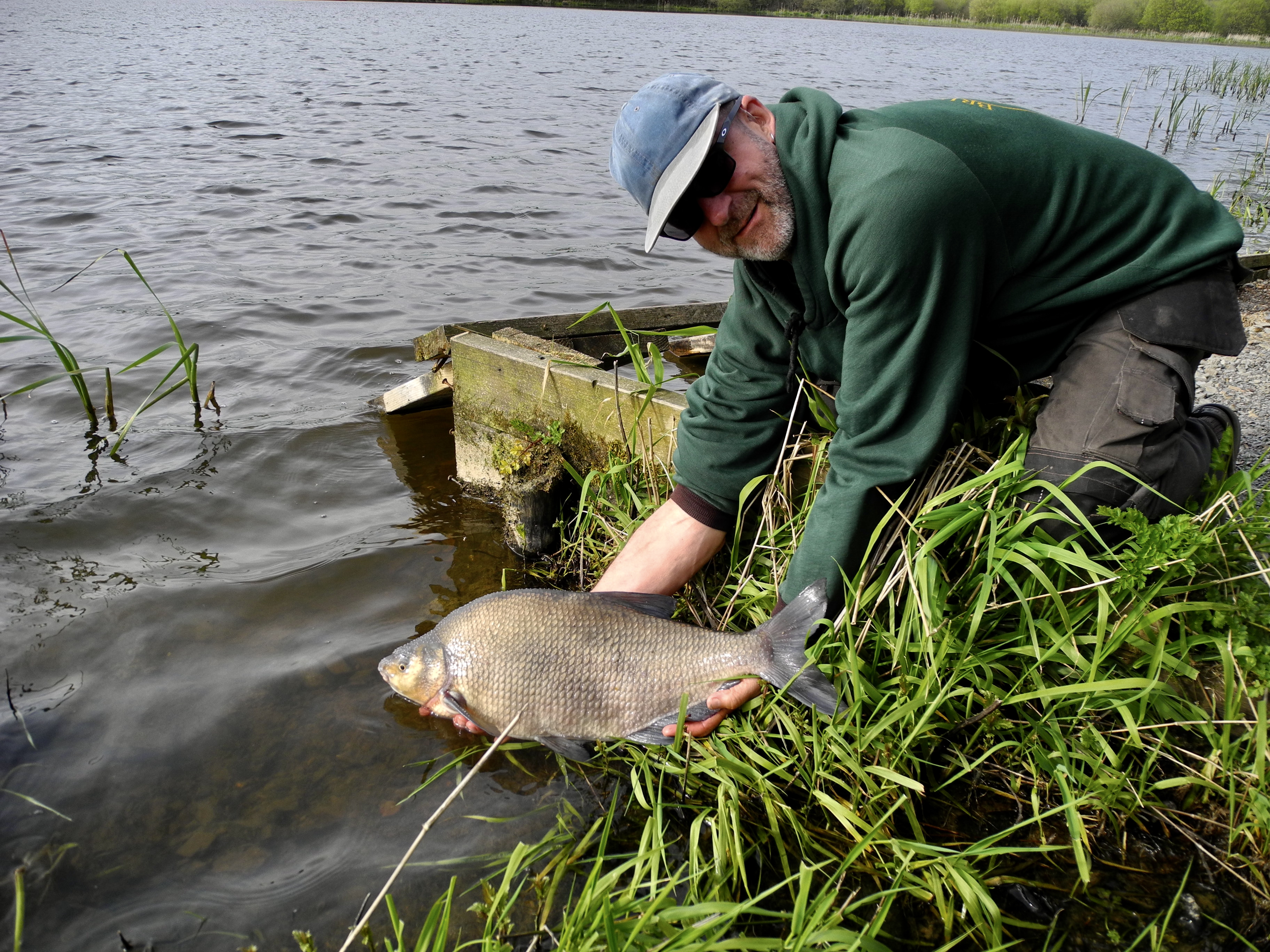
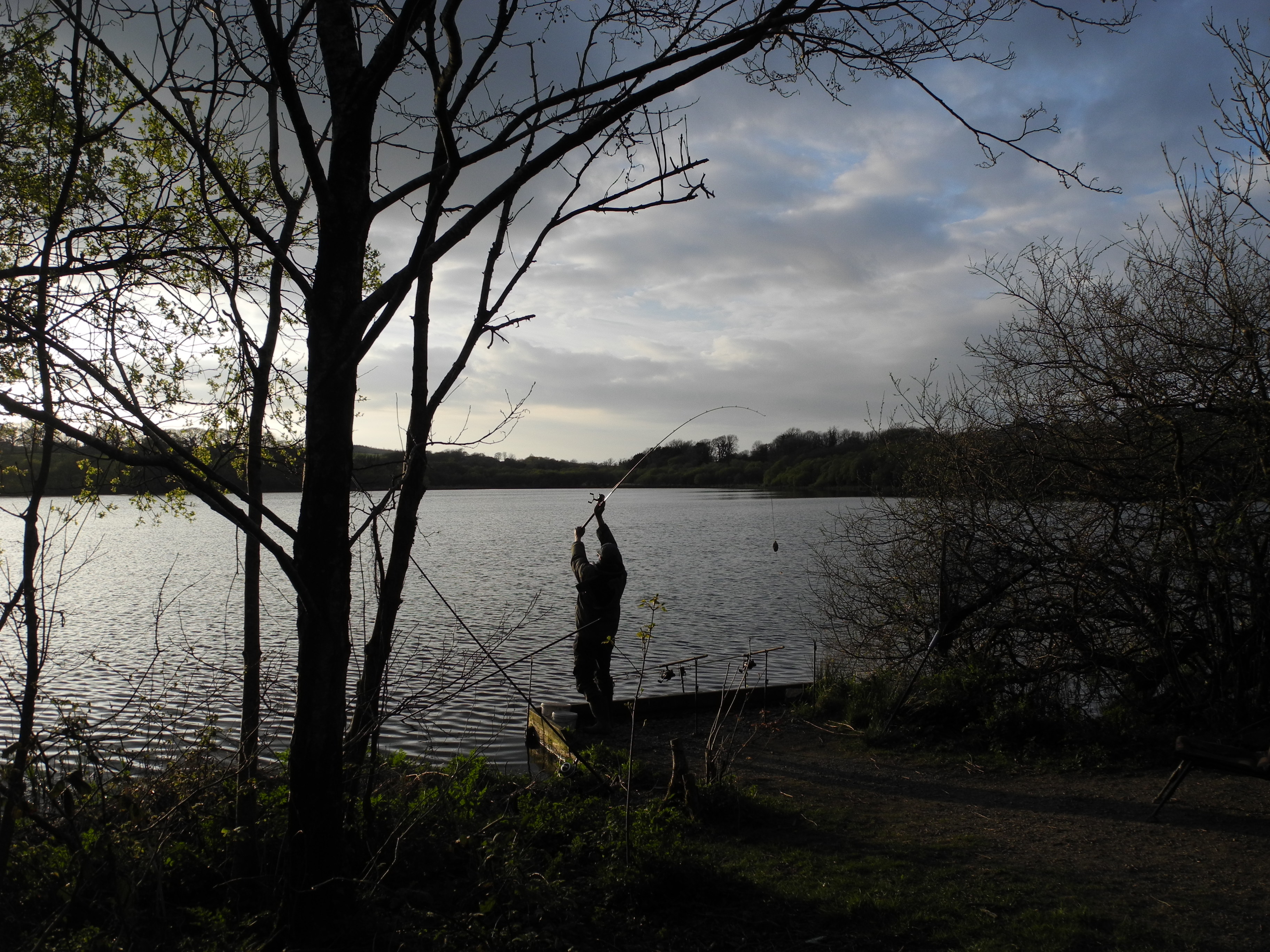
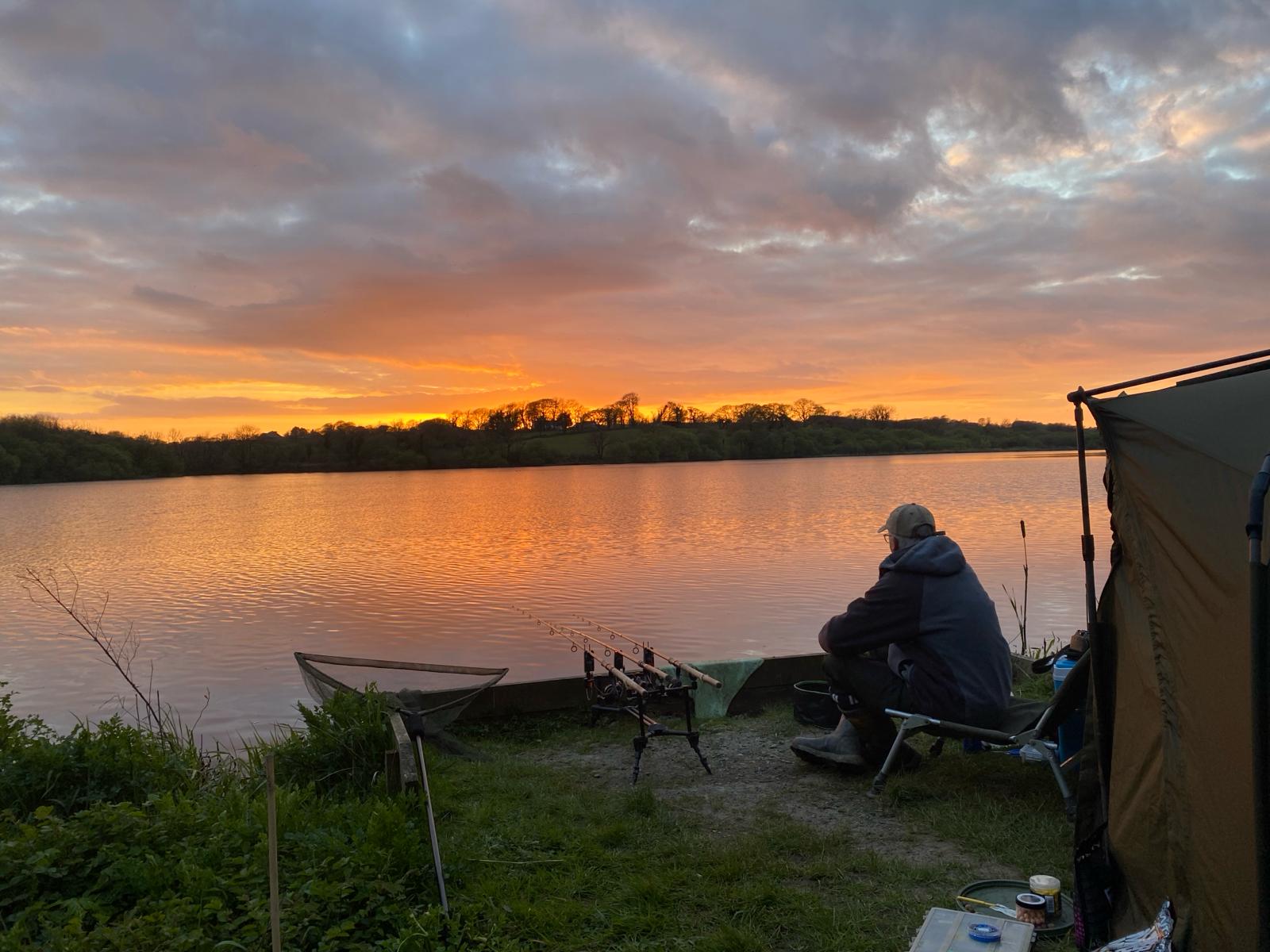
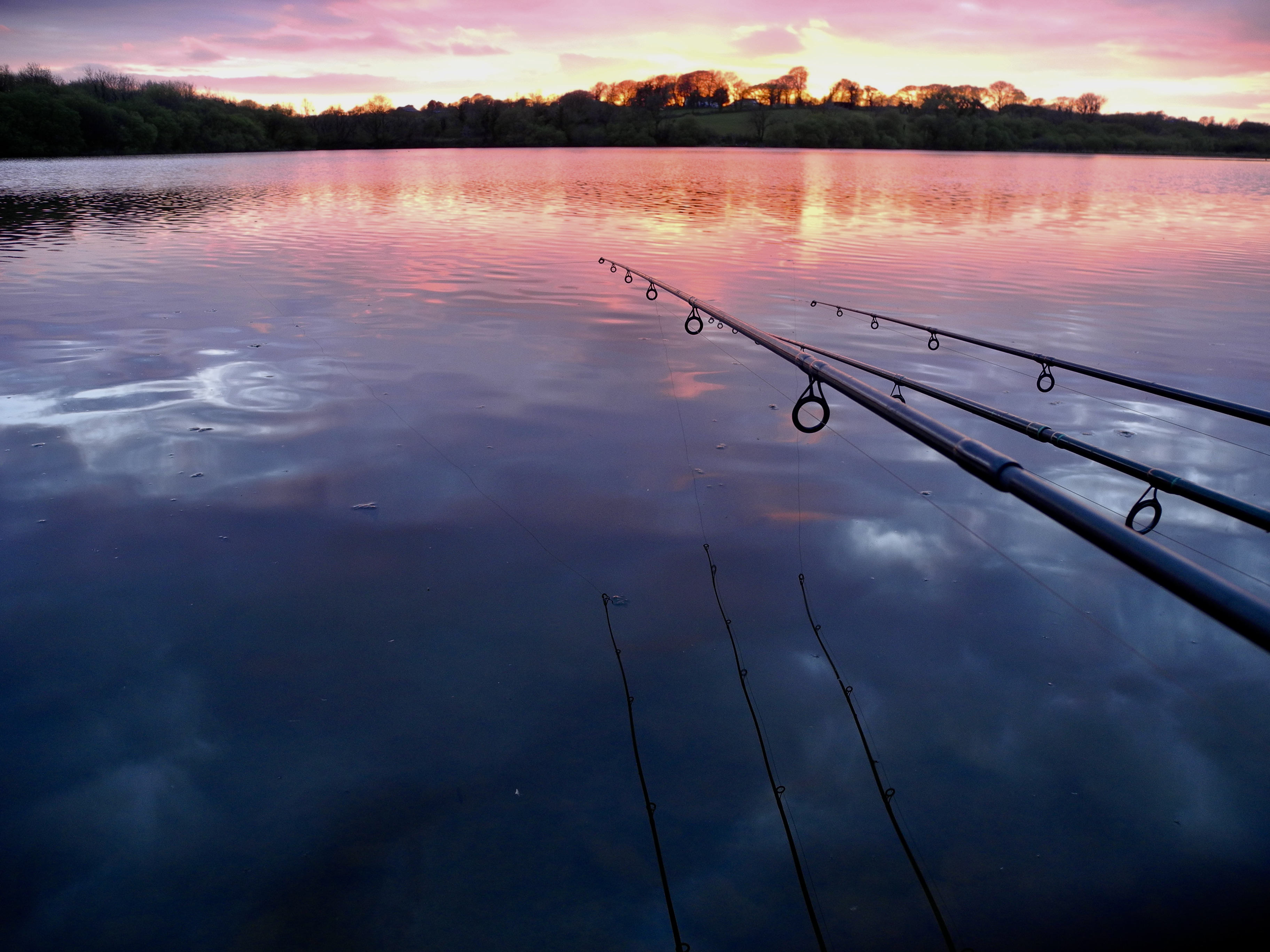
Shortly after dark Bruce’s call came again and this time it was a truly special fish. I slipped the net under a real slab weighing an impressive 13lb!
This set the pattern for the night as Bruce woke me periodically to show me bronze flanked bream weighing 9lb 13oz, 9lb 1oz, 12lb 1oz and 11lb 4oz. And a small eel…. A breamers dream session!
I must have had some sleep for I awoke just before 6.00am and recast my rods. Not a bleep all-night.
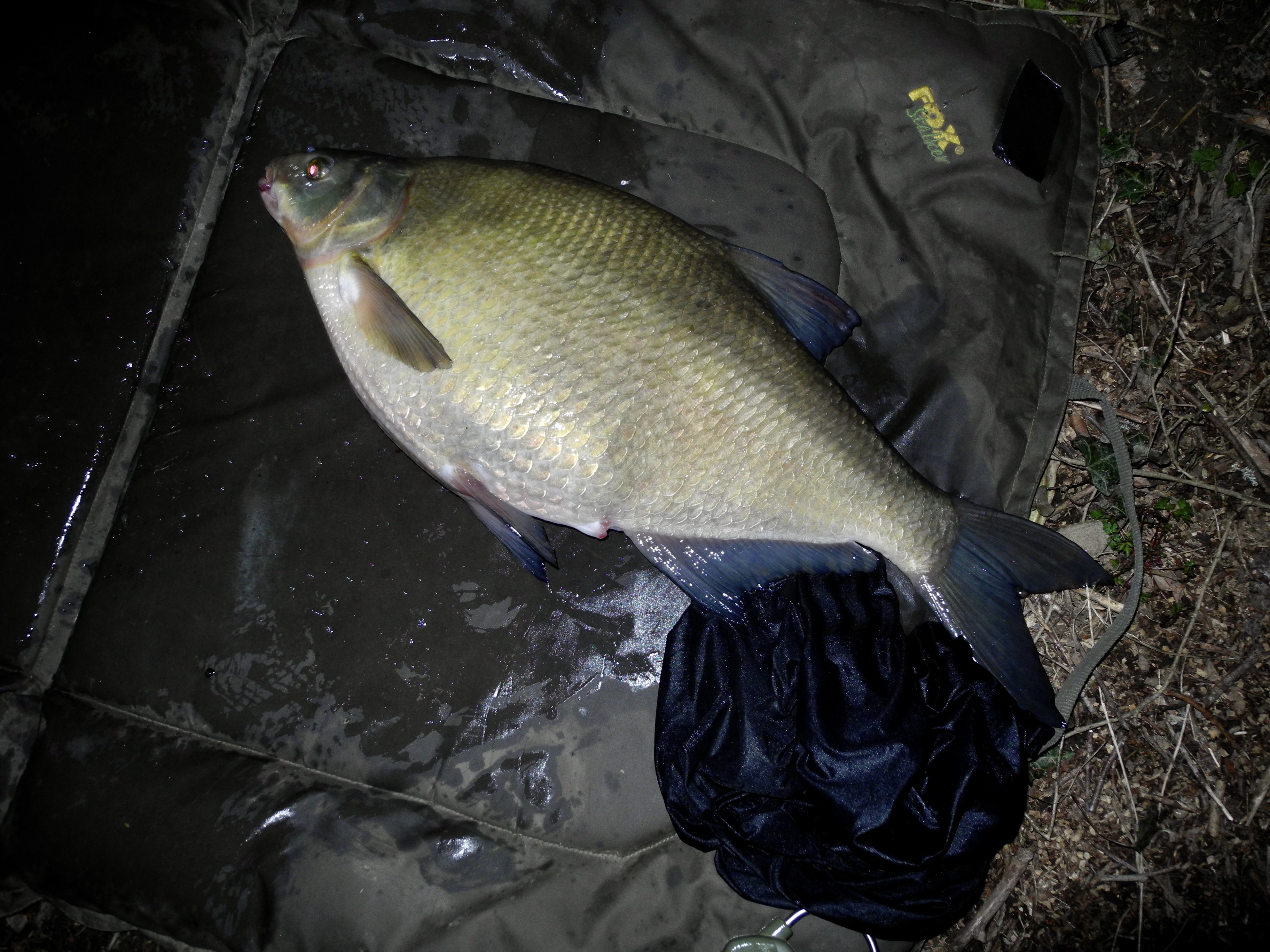
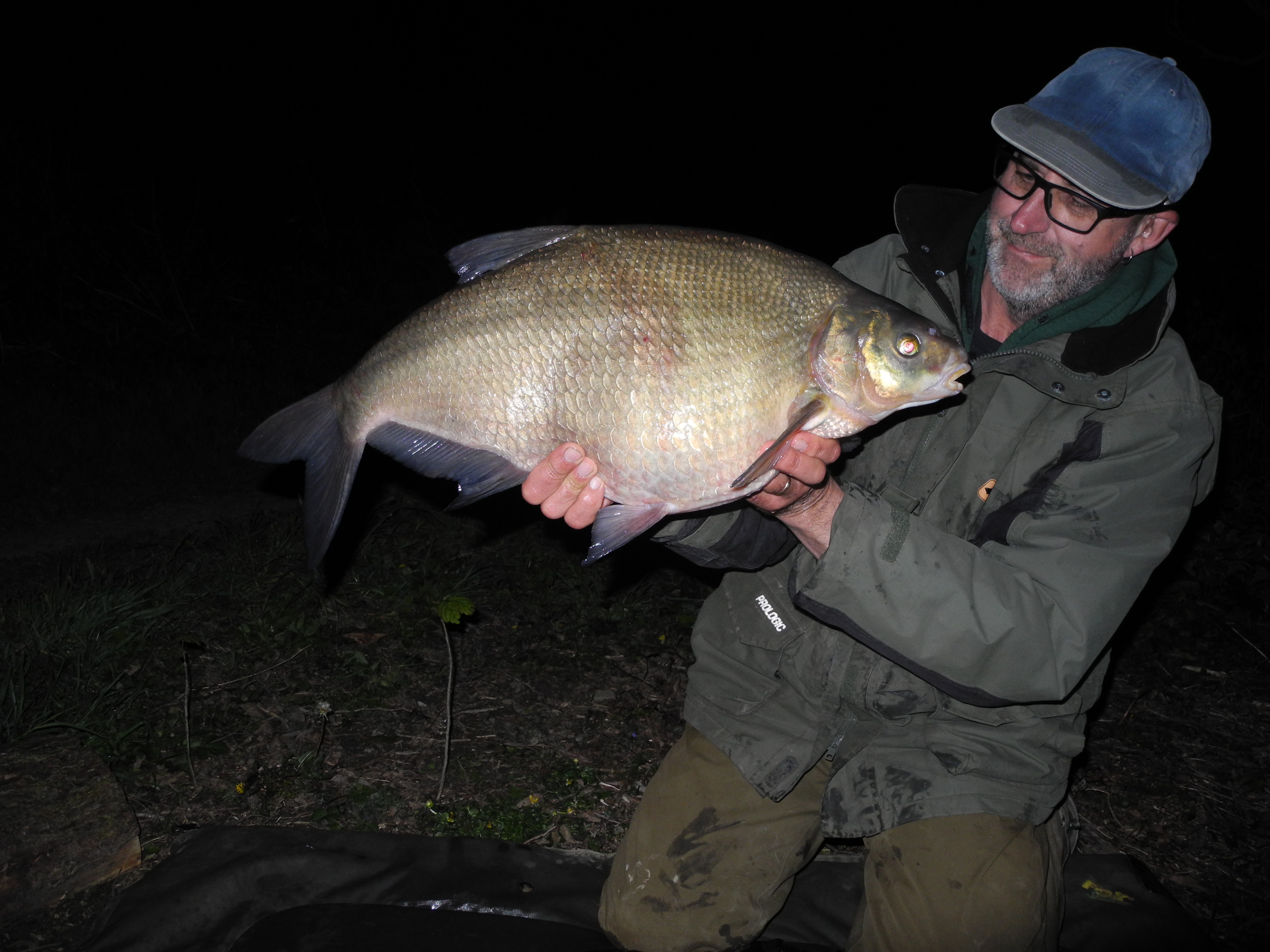
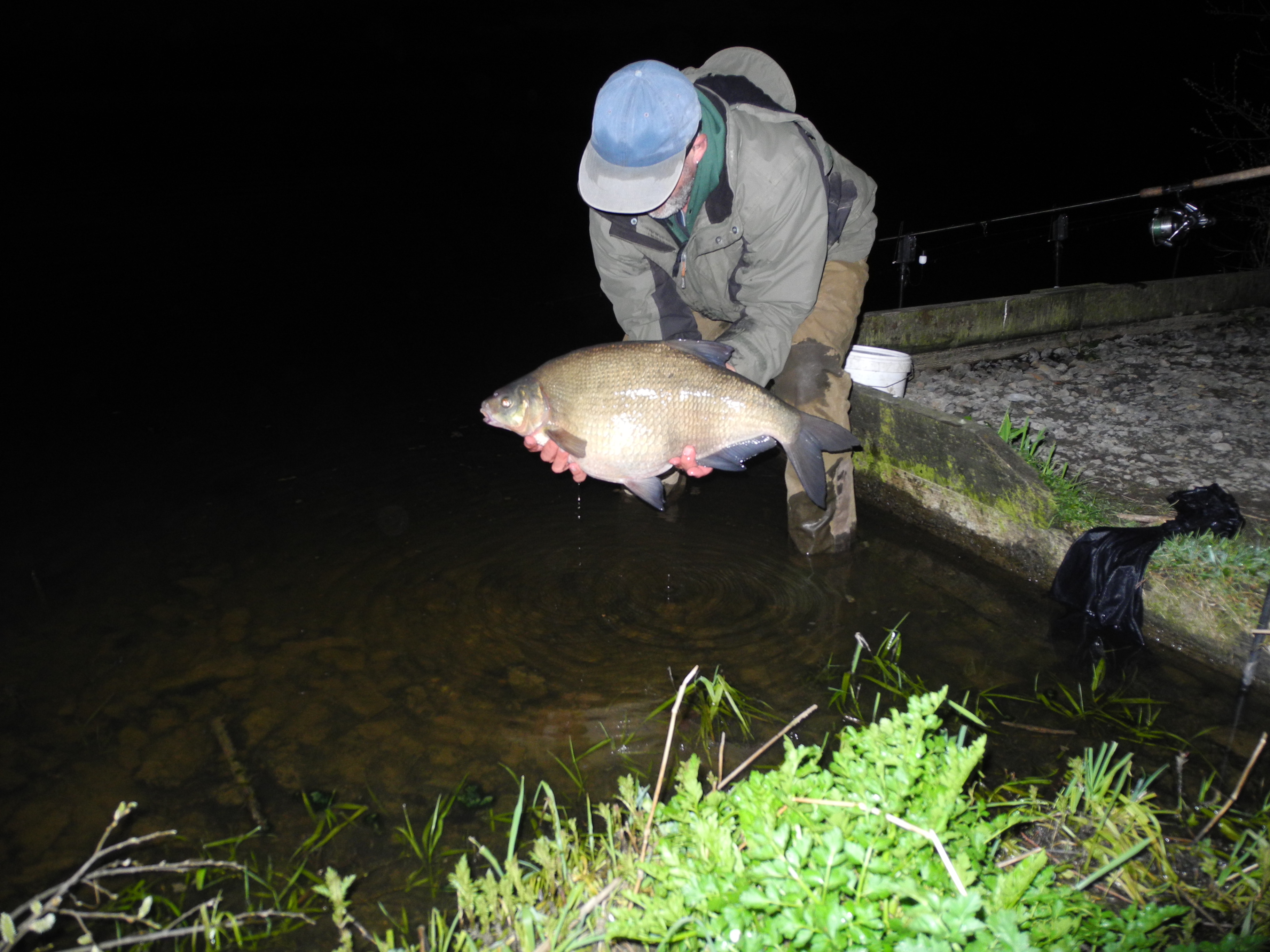
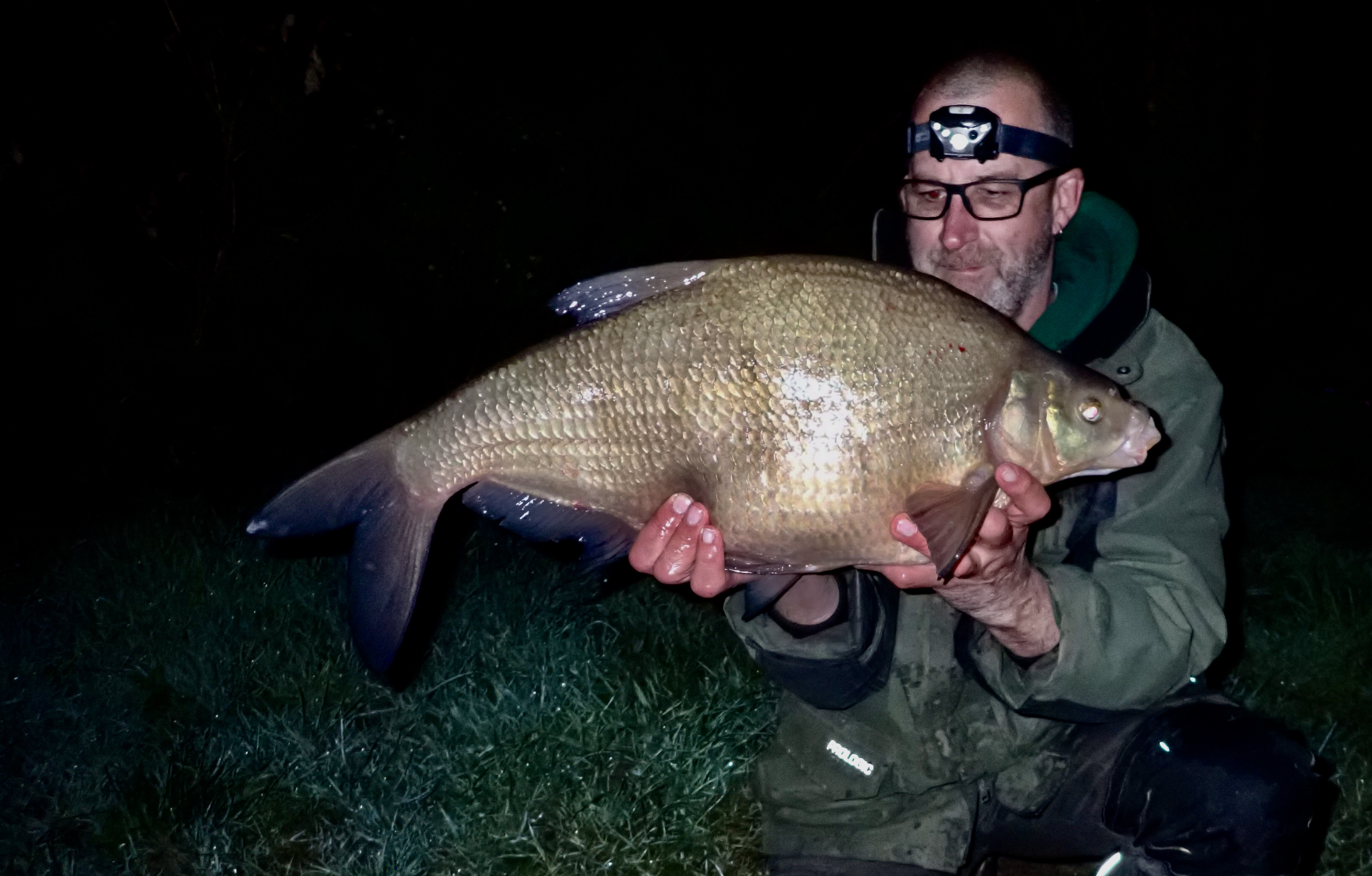
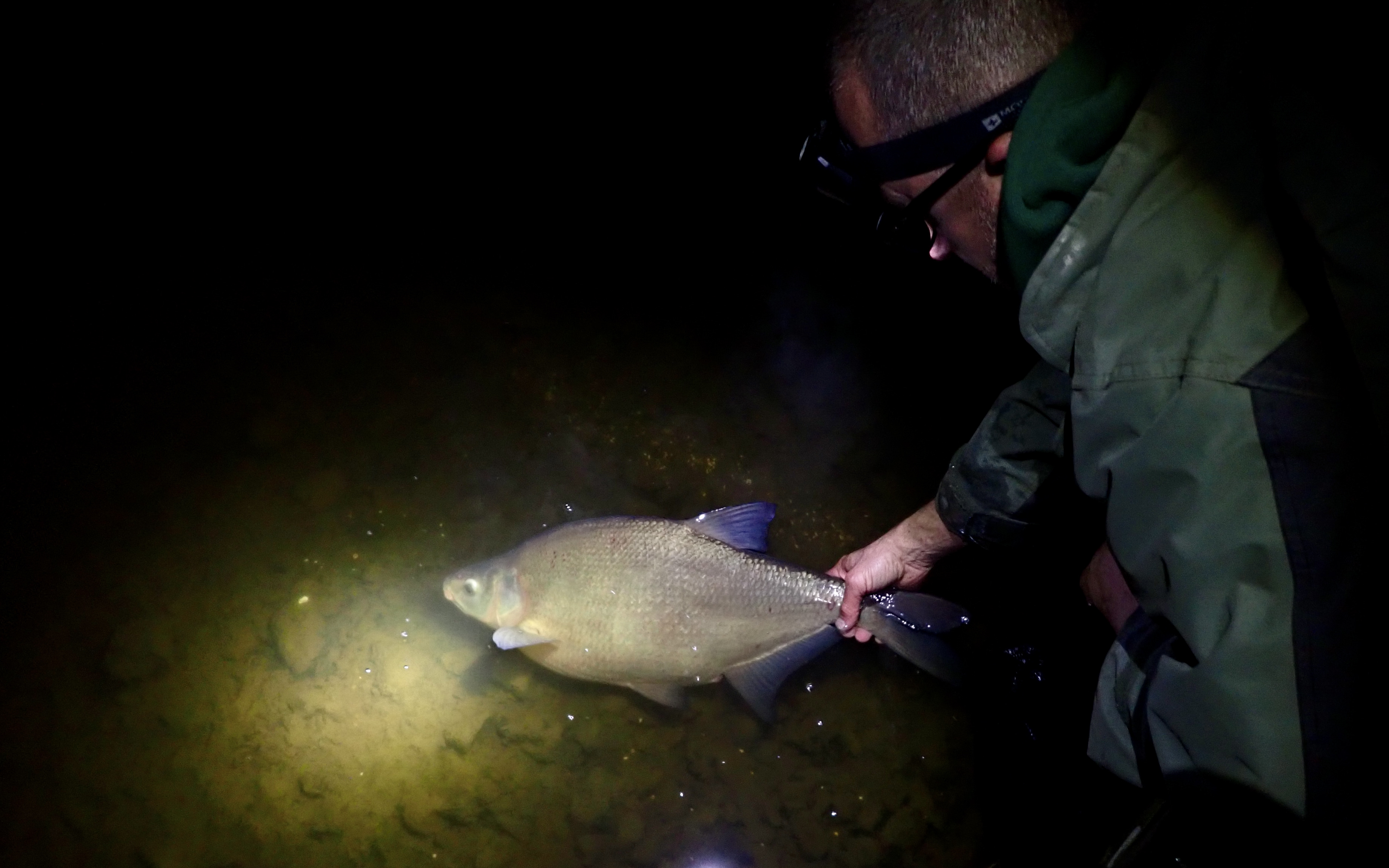
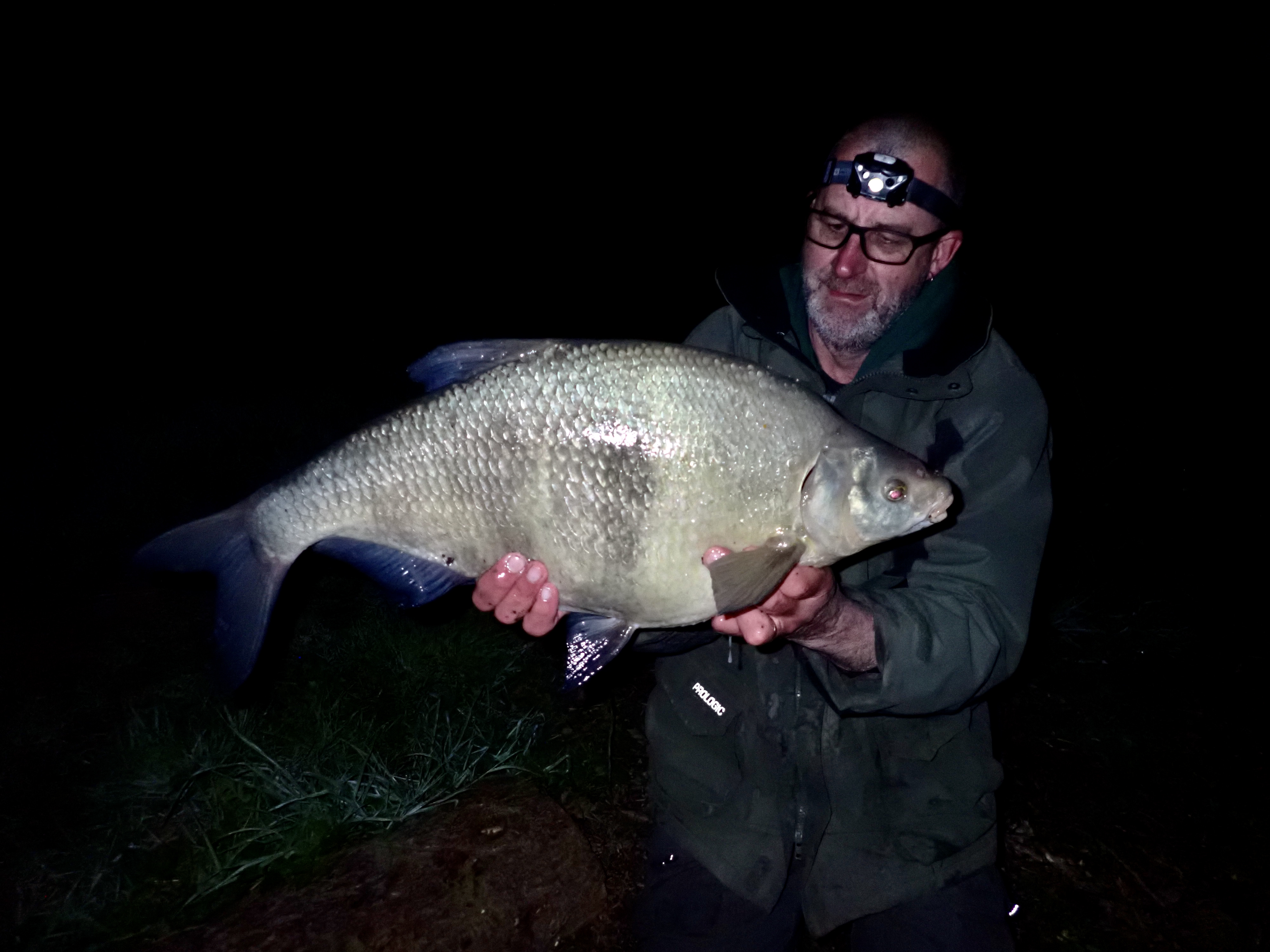
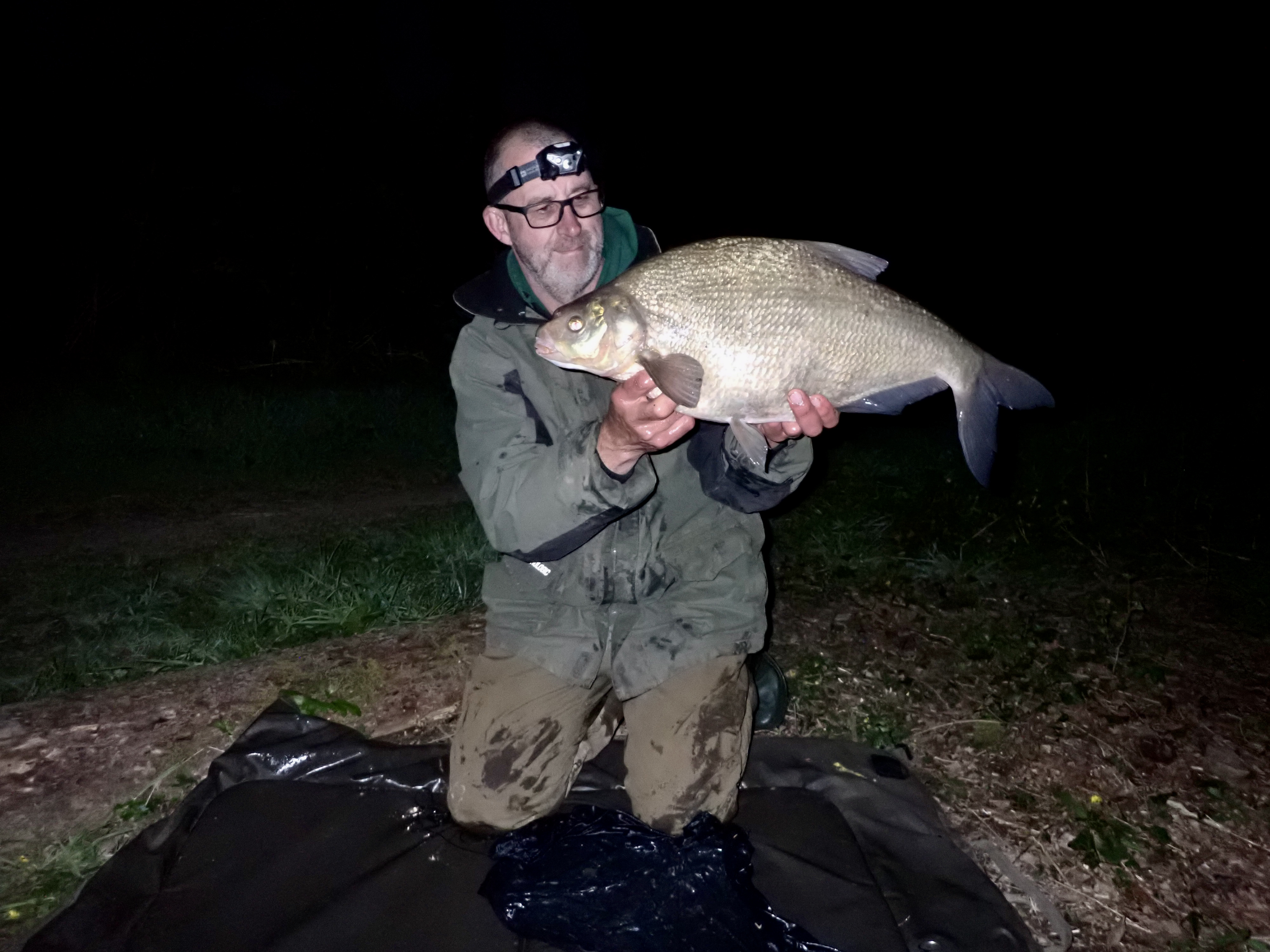
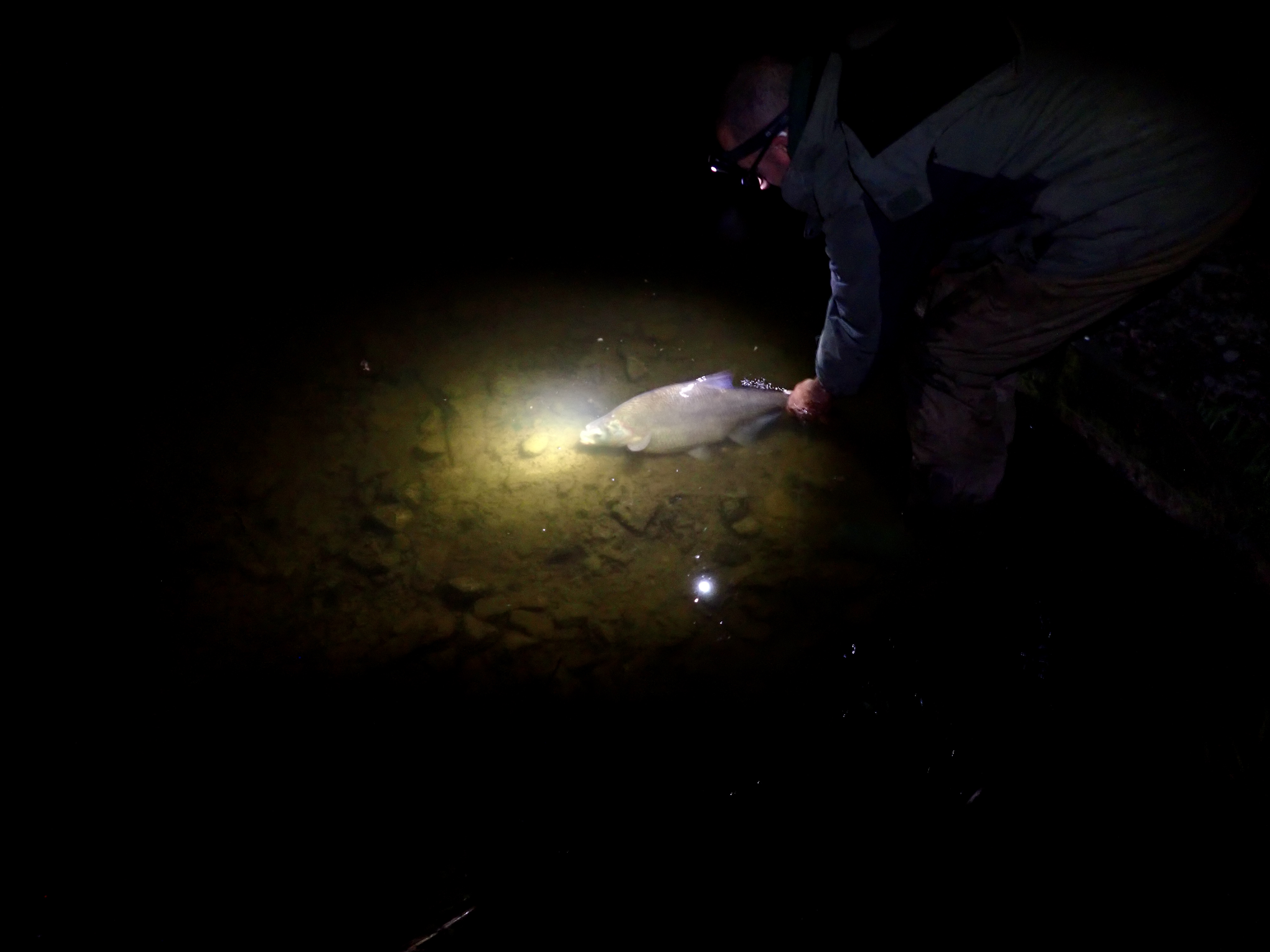
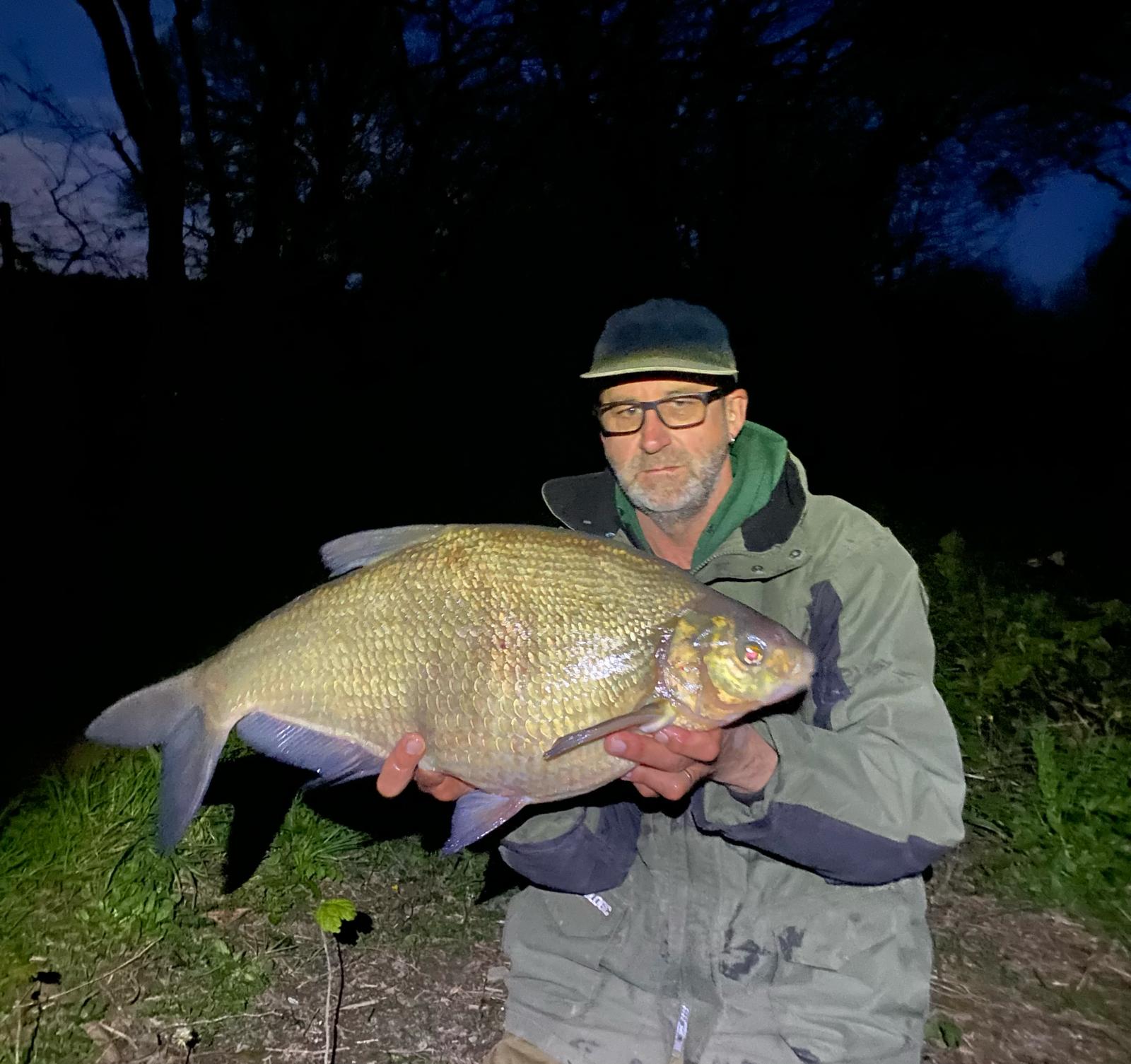
I chatted with Bruce in an analysis of my failure. Bruce expressed that he was concerned when I had told him I was using pigeon conditioner. An excellent bait for carp but he and his brother had used it in France to deter the bream!
Return trip
And so a few weeks later with plenty of big bream being reported I headed to Lower Tamar once again. This time I was on my own and it was late Sunday afternoon by the time I arrived. The prime swims were occupied so I had to fit in where I could and a swim named Fishless Corner failed to inspire. I knew it had produced the target fish in recent weeks and reasoned that my chances were still good. I spodded out a mix of pellets, sweetcorn and crushed boilies.
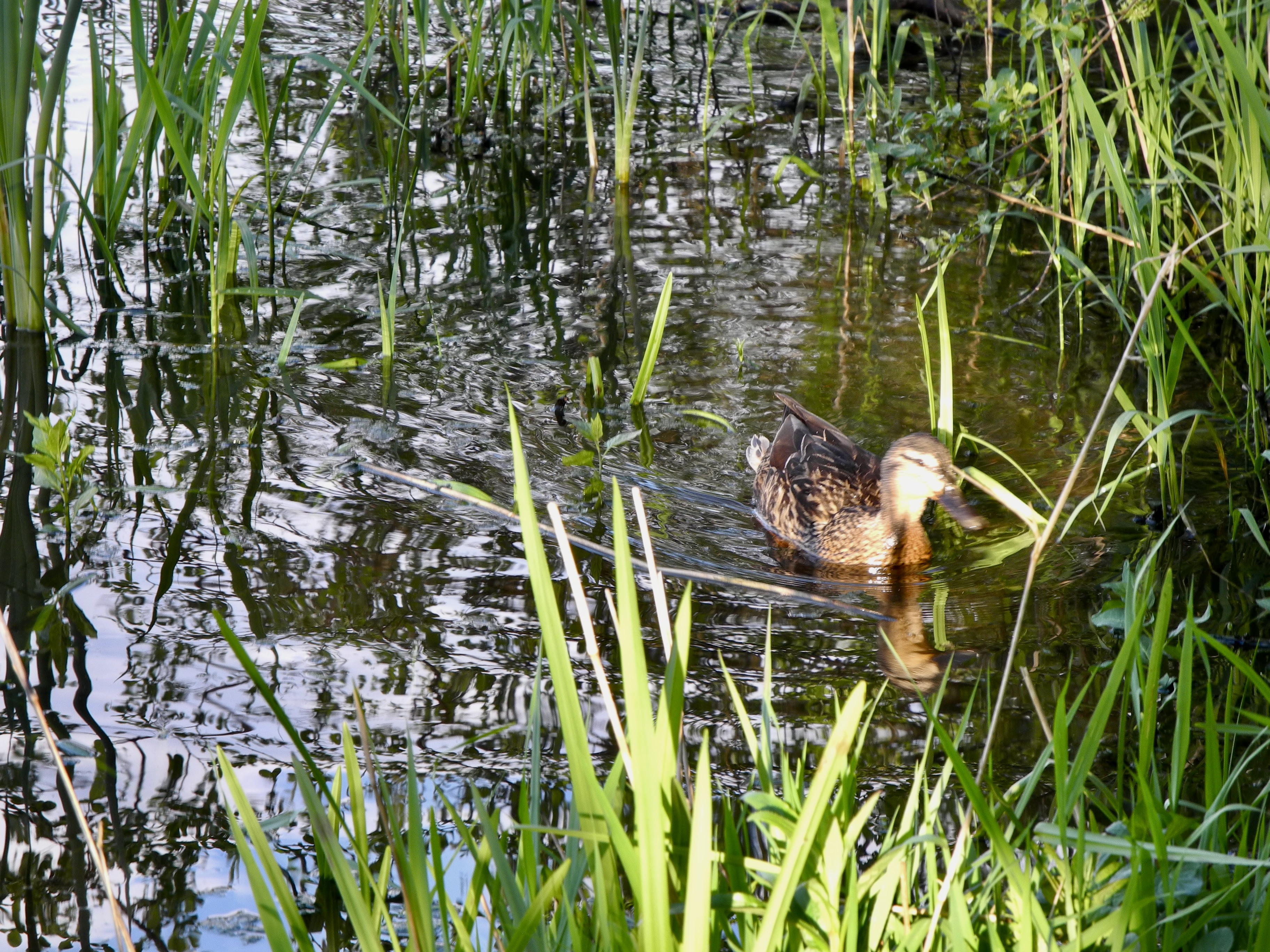
It was early evening by the time I was settled in waiting. I watched the water, the grebes and that ever pleasing sight of mother duck and her ducklings patrolling the margins. I cooked up a burger, made a fresh coffee and became emersed in the scene.
The light slowly drained from the day and a stillness enveloped the lake. The birdsong became subdued and hundreds of bats appeared as the stars began to twinkle in the night sky.
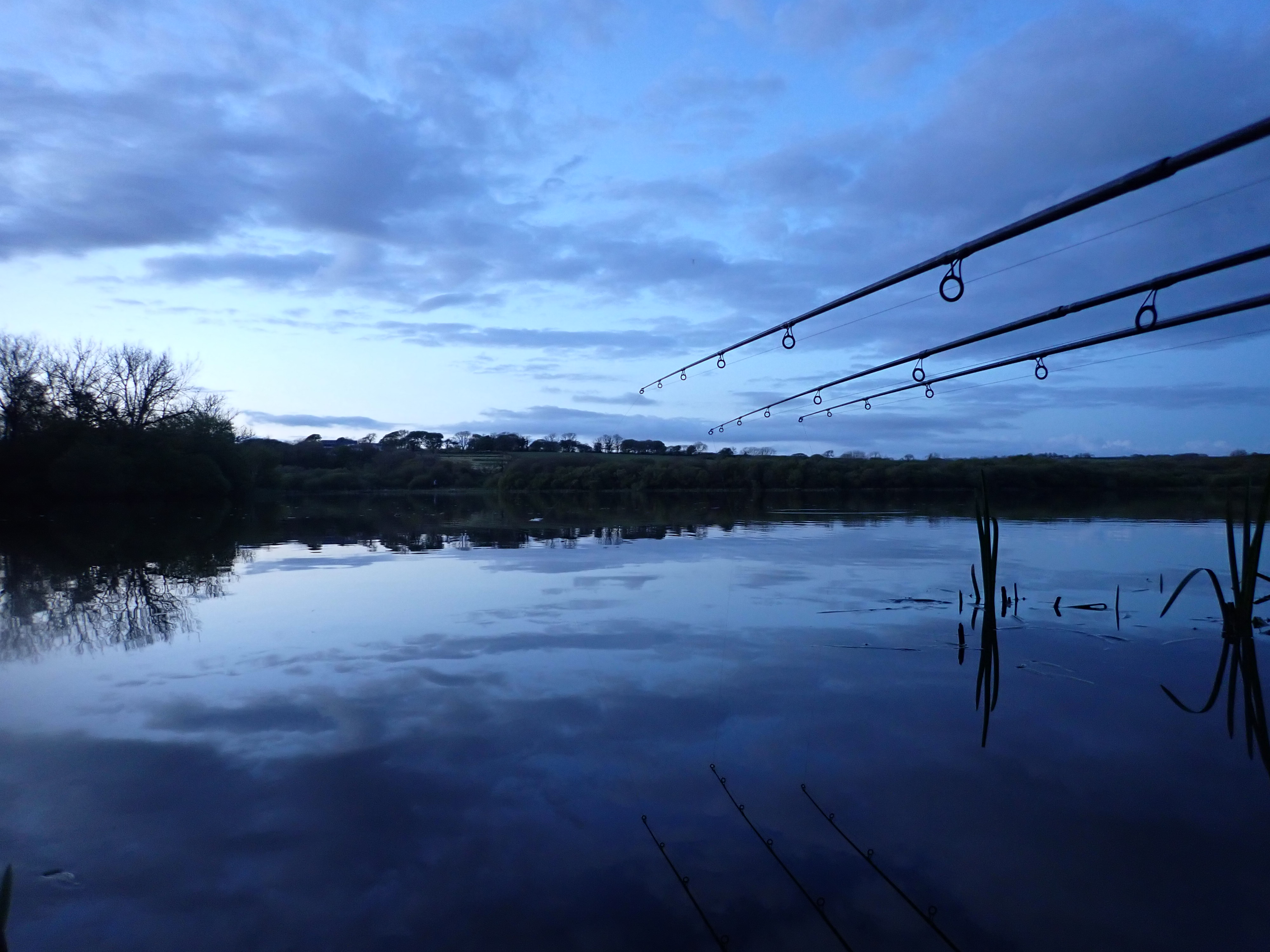
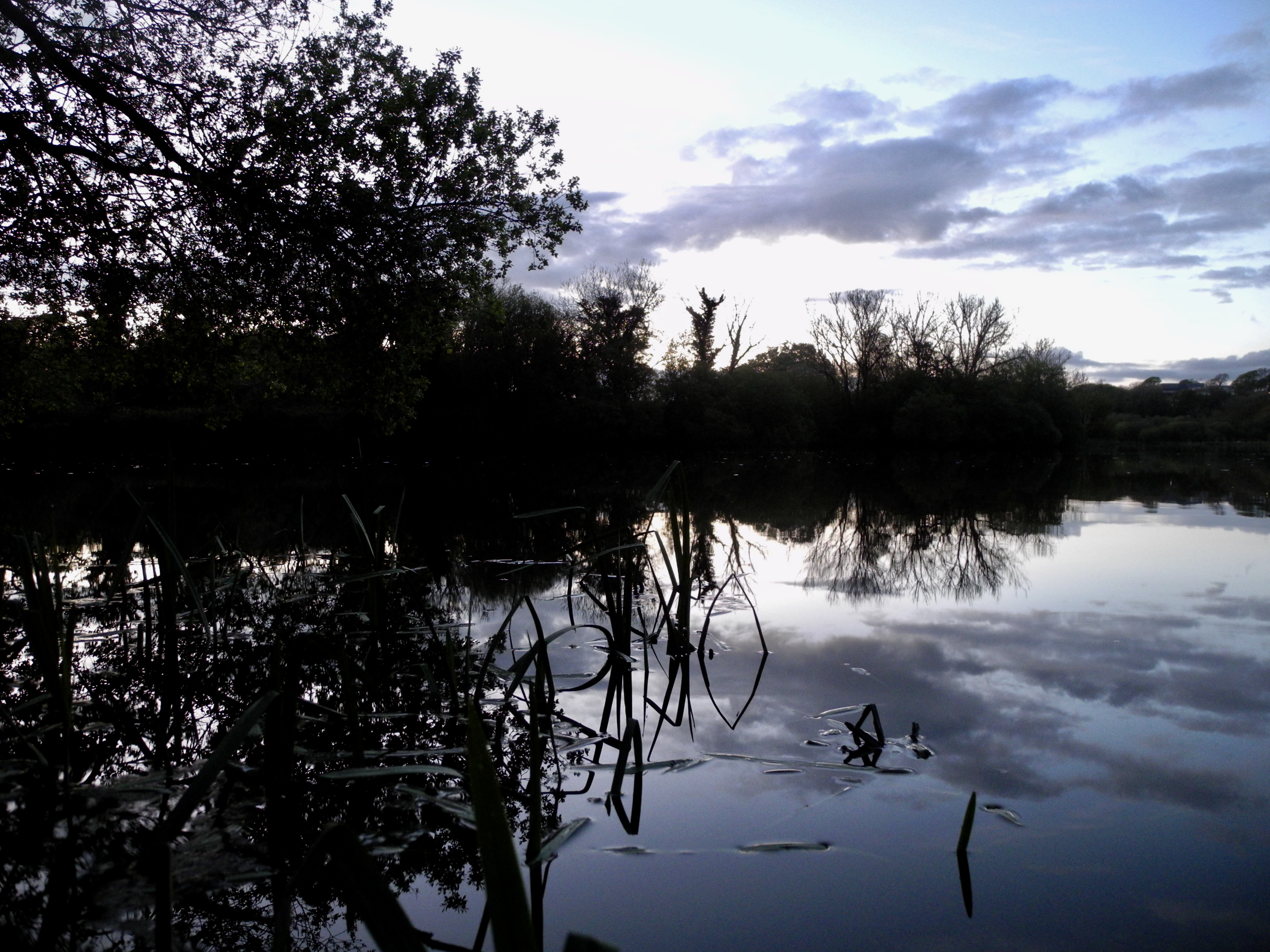
I climbed into the sleeping bag expectant and alert. Slowly I drifted into a shallow sleep waking from time to time. My expectation was fading as the sky slowly lightened as the sun returned for another day. A movement caught my eye in the half light as a rat scampered onto the boards at the front of the swim, its form clearly silhouetted against the dim light. The dawn chorus slowly increased in volume familiar sounds of birdsong resonating in the still light of dawn. I am always amazed at the volume and clarity delivered by the tiny wren. I have an app on my phone called Merlin that identifies birdsong. Wren, chiffchaff, goldcrest, wood pigeon, carrion crow and blackbird all recorded in 60 seconds.
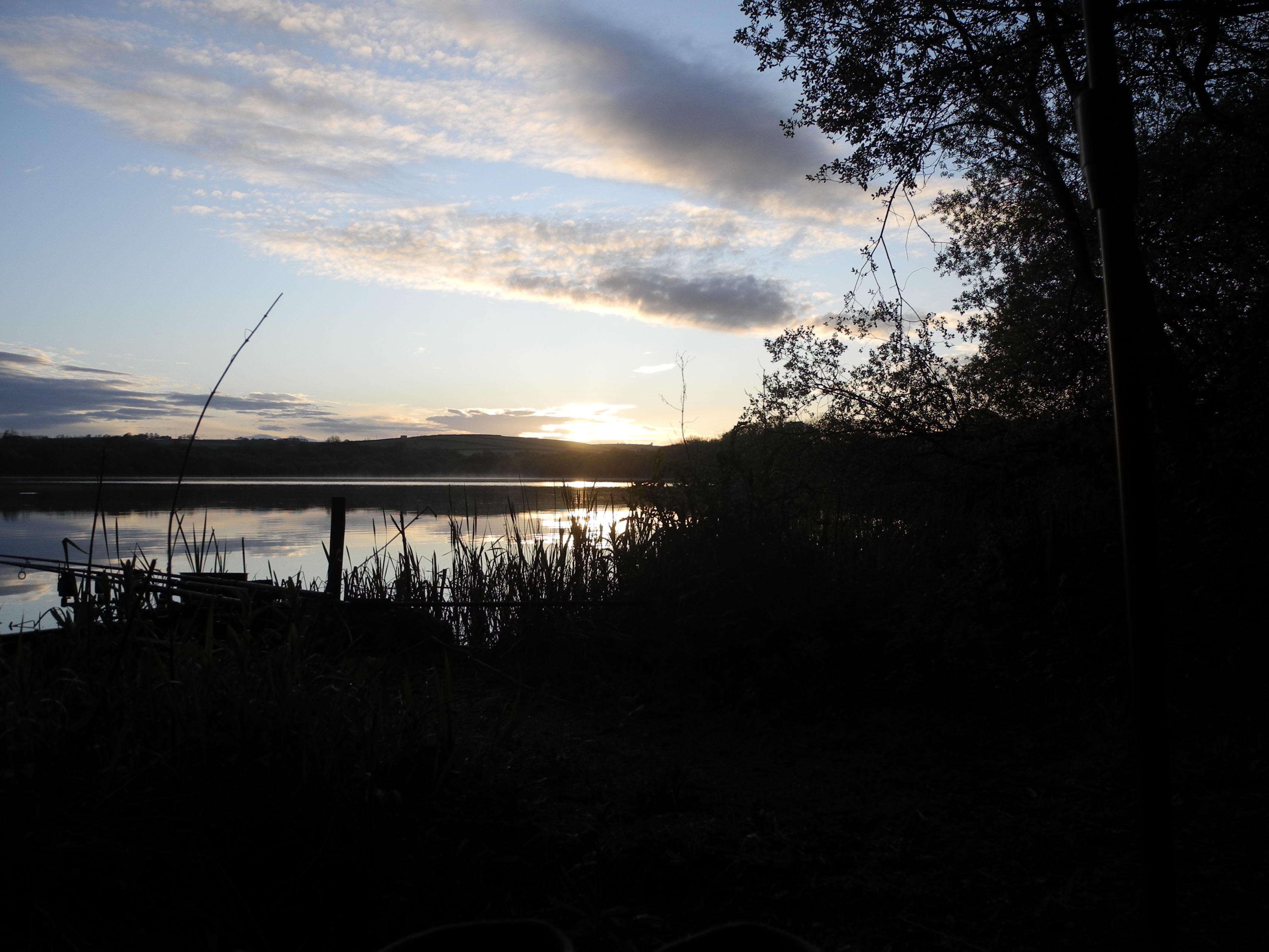
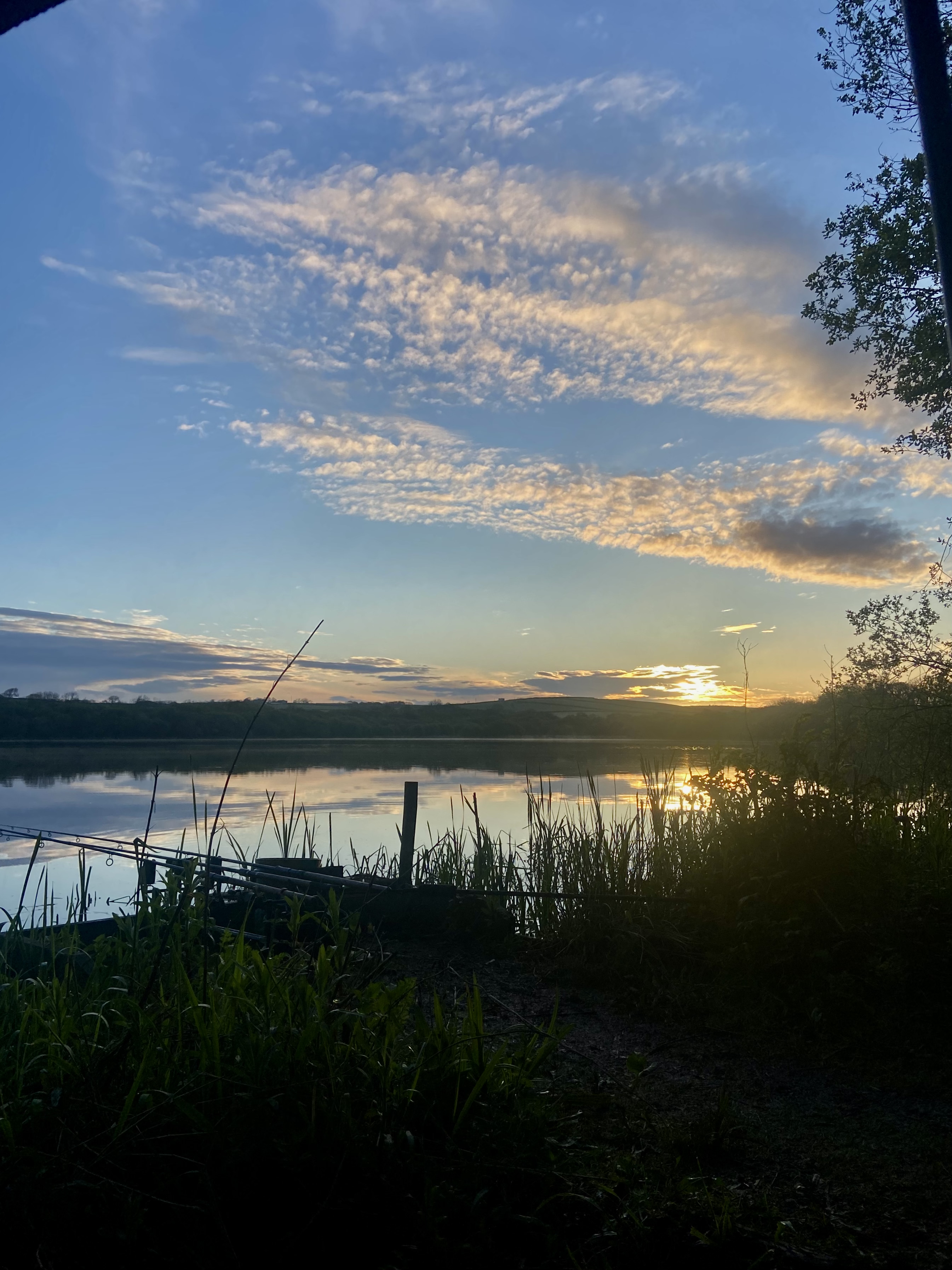
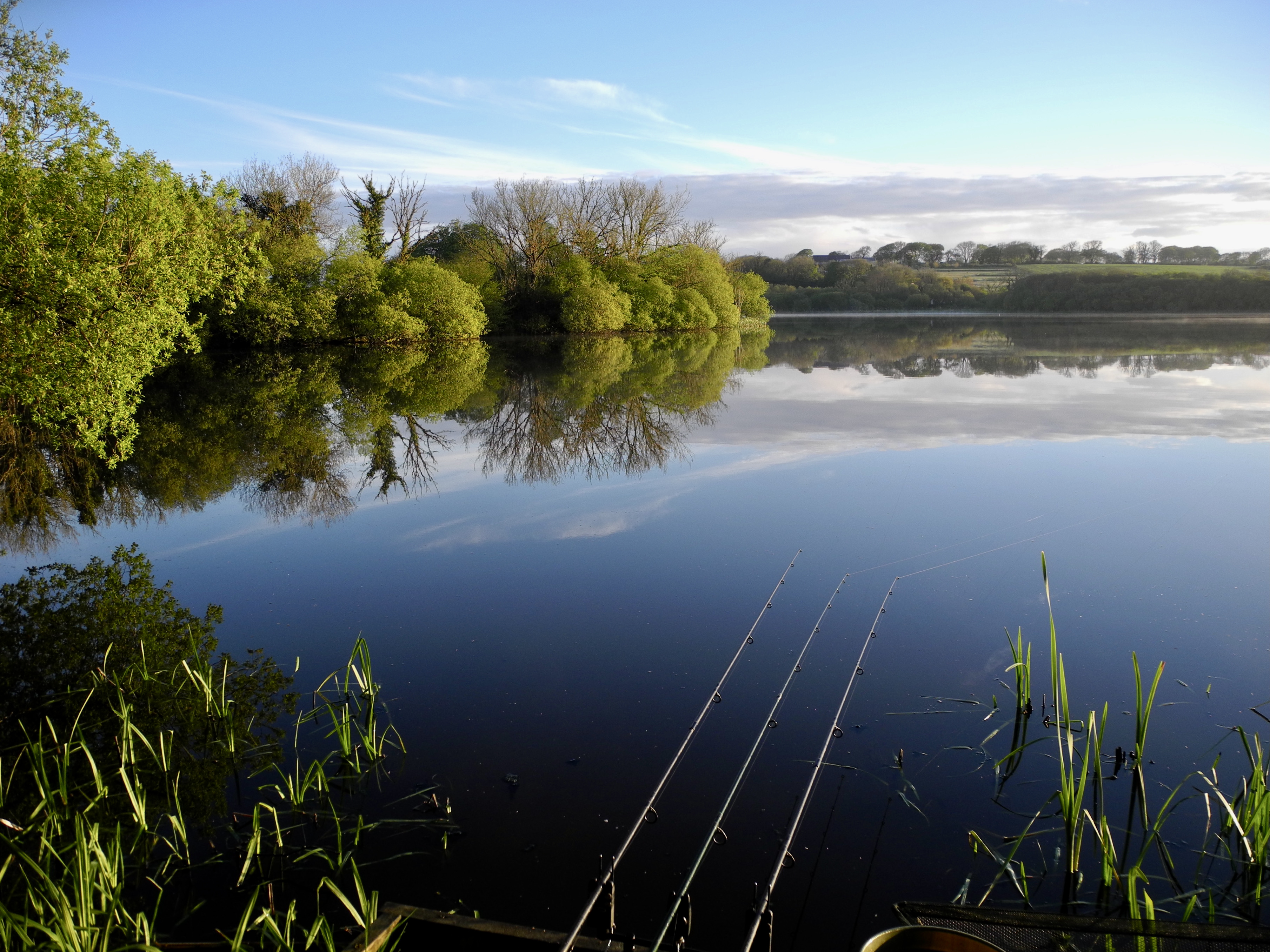
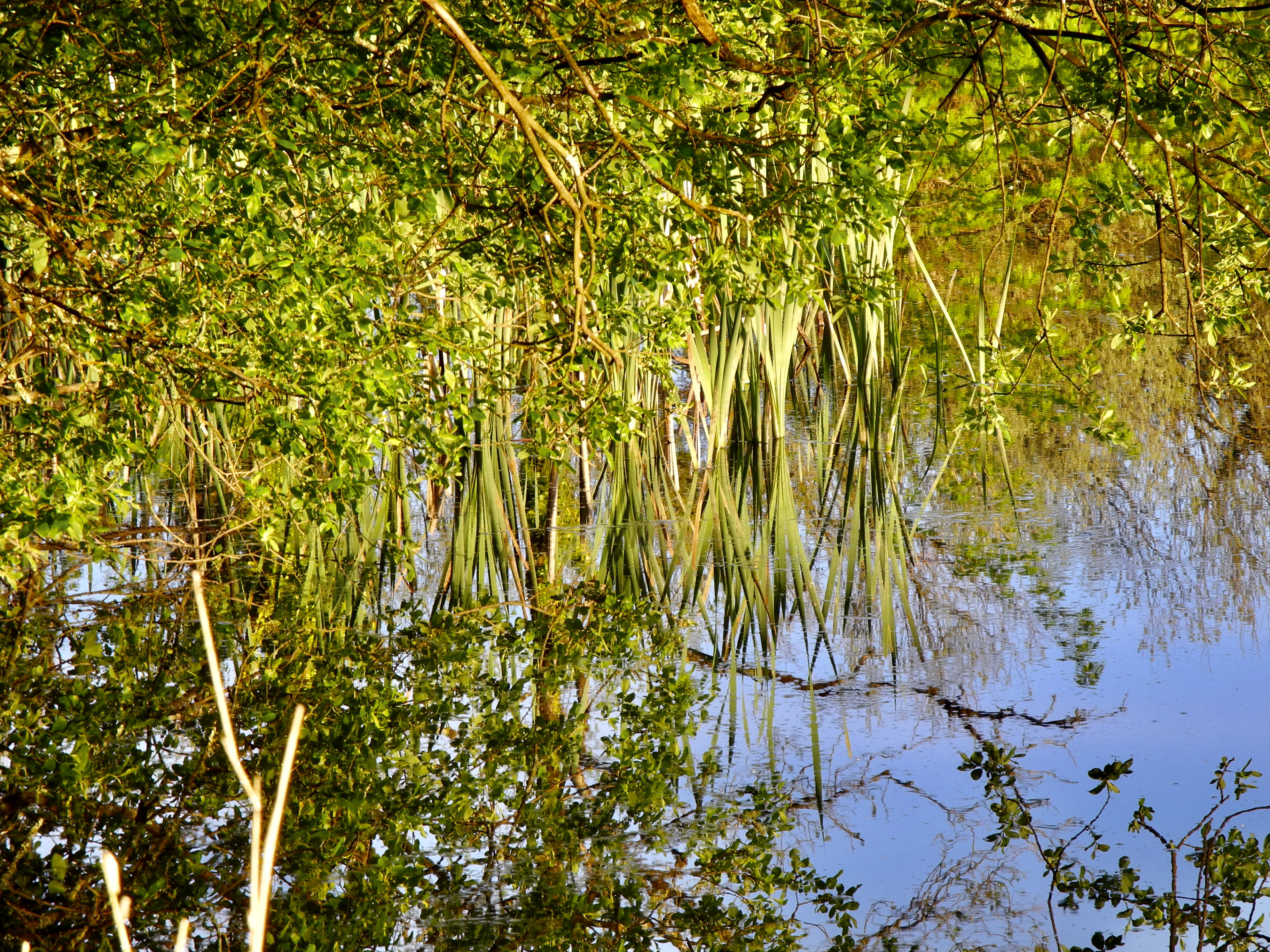
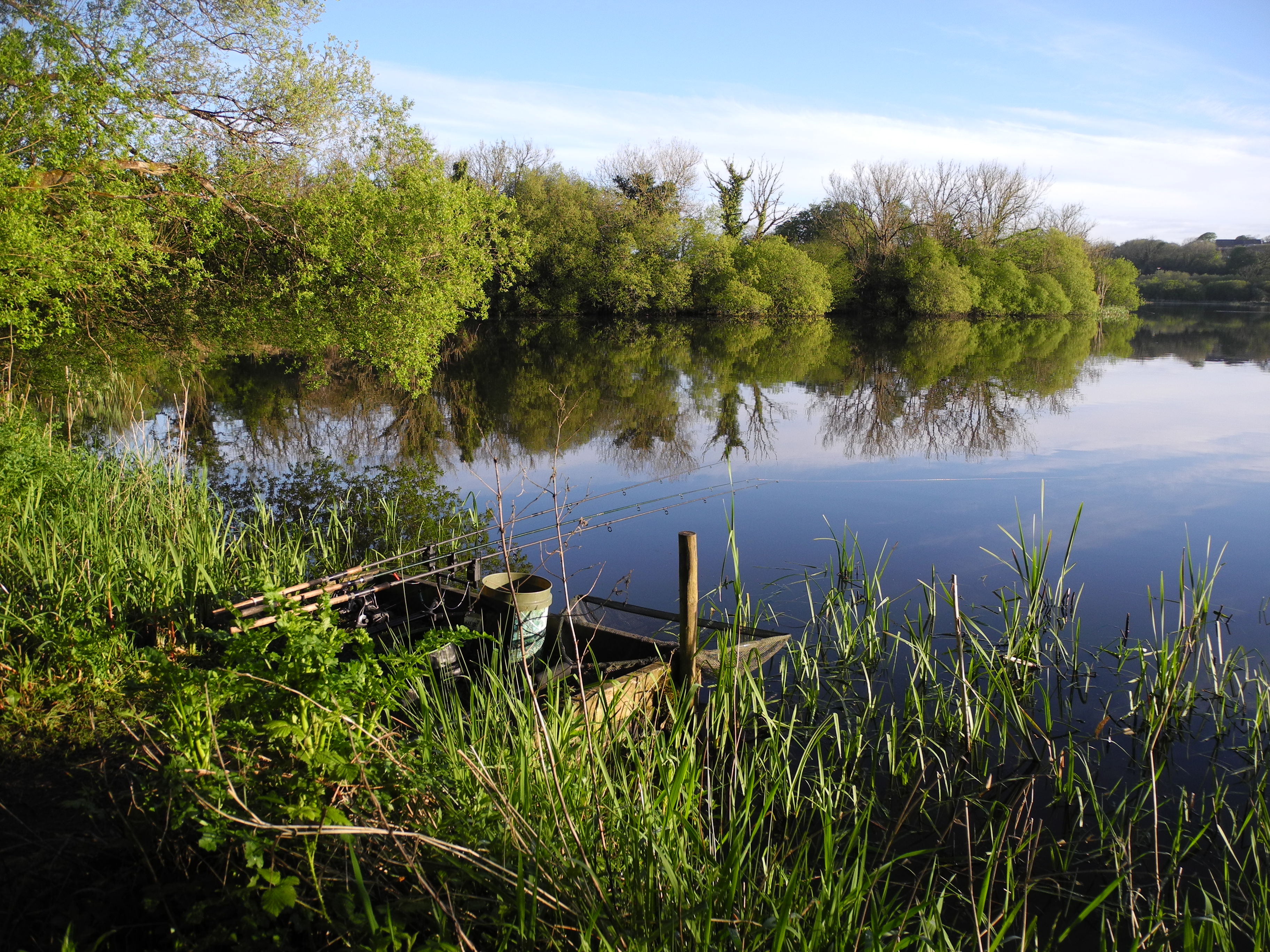
Reflections of lush green and blue sky upon mirror calm waters. Mist drifted across the far side of the lake it was a perfect late spring morning. I sat back and breathed in the pure cool air savouring the sharp taste of hot freshly brewed coffee. I contemplated upon my lack of success and philosophically accepted that in the grand scheme of life not catching was of little consequence. To be here was surely worth the chase.
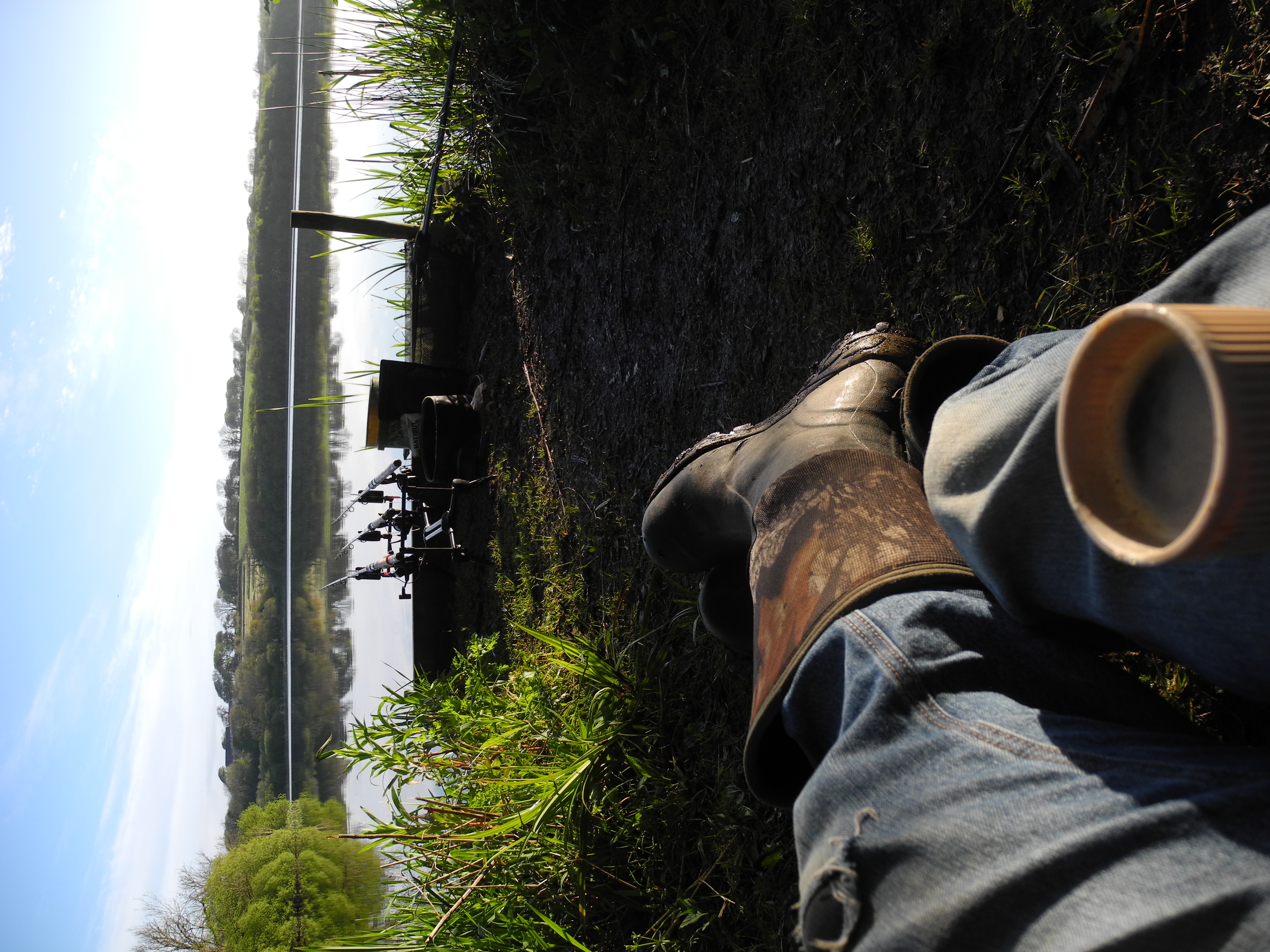
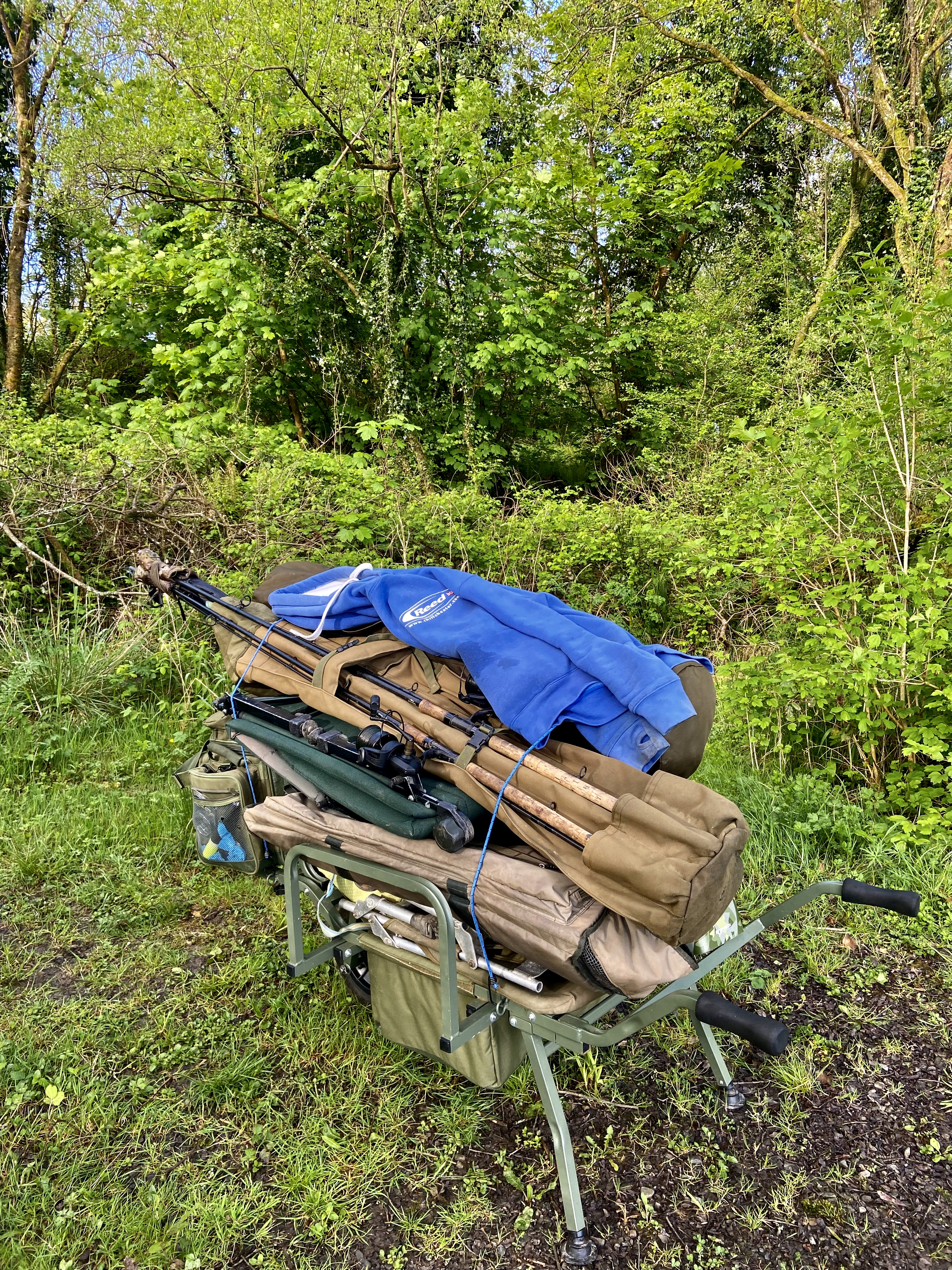
As a gentle breeze riffled the water all hope of catching evaporated and I packed slowly away. As I pushed my barrow full of gear back to the car I had to concede clearly that I had all the gear and no idea.
Back at the car I met a fellow angler. “ How did you get on ?” I asked. He replied that he was, “ delighted to have caught a 29lb common carp but had been plagued by nuisance bream that were this big!” He stretched his arm wide to indicate the size of bream within my dreams.
I will be back third time lucky. In a different swim with modified rigs and hopefully no requirement to find a reason that I failed to connect.
Tghe UK River Summit is to be held beside the River Wandle in London on May 21st. It looks like it will be very intersting event for those who are passionate about rivers across the UK and beyond. Please see information below: –

https://www.theriversummit.com/the-uk-river-summit-2024-panel-discussions
https://www.theriversummit.com/the-uk-river-summit-2024-culture-celebration
https://www.theriversummit.com/our-partners
This unaffiliated event, curated by an independent team comprising of Claire Zambuni, Emma Sandham and Iona Mackay, aims to facilitate a forum for interesting parties and stakeholders involved with the range of issues affecting UK rivers. Set at Morden Hall on the River Wandle in London on the 21st May 2024, The UK River Summit & Festival provides a platform for collaboration and communication on the current issues and solutions required to improve the health of our rivers.
Bringing together environmentalists, policy makers, regulators, campaigners, anglers, media, businesses, politicians and members of the public who all share a desire to work towards a more positive future for our rivers, this event offers interested parties the opportunity to build relationships and network while also finding time to celebrate our rivers, engage in community-led initiatives, and experiences based on the river Wandle.
Following the success of the inaugural UK River Summit on the River Test in Hampshire last year, this event moves to the River Wandle, a unique chalk stream flowing through an heavily urbanised area intertwining a rich historical past with a current ecological importance.
Claire Zambuni, Founder of The River Summits & Festivals said “The UK River Summit offers the opportunity to discover some of the valuable work going on and the knowledge to affect change, as well as celebrate our rivers based on an extraordinary chalk stream, the River Wandle. We are hugely grateful for our partners’ support on this unique event. We hope the Summit helps present a collaborative voice in demanding positive action for our rivers and waterways. In this general election year, the need for action and to engage politicians to work across parties to resolve this crisis, has never been greater.”
Penny Gane, Head of Practice at Fish Legal said, “With the state of our rivers and lakes rarely out of the headlines, this event is an opportunity for local people to find out what is being done to turn things around.”
As we navigate the challenges of a rapidly changing planet, the key to environmental progress lies in facilitating continuous dialogue between various players – from government officials and NGOs to businesses and the public. This event aims to bridge these gaps. Attendees will gain informed knowledge from key environmental stakeholders, be able to ask direct questions, work collaboratively to find solutions, and celebrate our rivers.
Date, Location, and Schedule:
Tuesday 21st May 2024 at Morden Hall, South-West London
“It’s not all about sewage” summit panel speakers include:
Afternoon panel discussions include:
Film Screenings include:
Afternoon activities include:
Tickets:
Tickets are now on sale here: UK River Summit – Orvis UK
Tickets include refreshments and lunch, and all activities on offer during the day.
All tickets must be bought in advance before 17th May
Event partners include The National Trust, Proteus Instruments, South East Rivers Trust, Fish Legal, Orvis UK, River Action UK, The Rivers Trust, Surfers Against Sewage, Filson, The Wandle Piscators, The Wandle Industrial Museum, Delivita, Lakedown Brewing Co., and Abel & Cole.
For more information please contact Zambuni Communications on the details below.
PR Contacts
Claire Zambuni | [email protected]
Emma Sandham | [email protected]
Iona Mackay | [email protected]
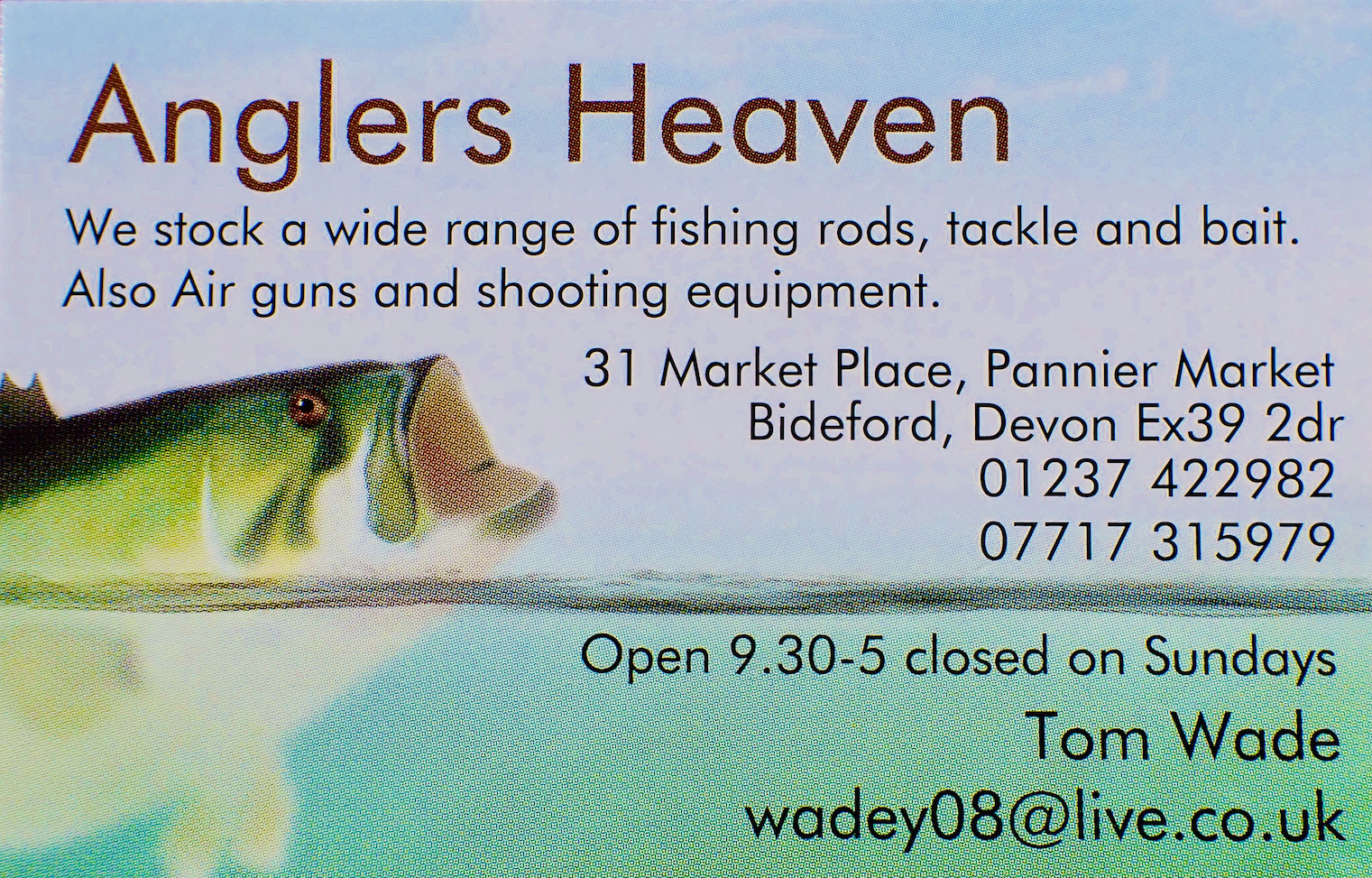
1st Andrew Clements Wrasse 4lb 4 1/2oz 95.138%
2nd Stephen Found Wrasse 4lb 2 1/4oz 92.013%
3rd Andrew Clements Wrasse 3lb 9 3/4oz 80.207%
4th Paul Ackland Dog 2lb 4oz 75%
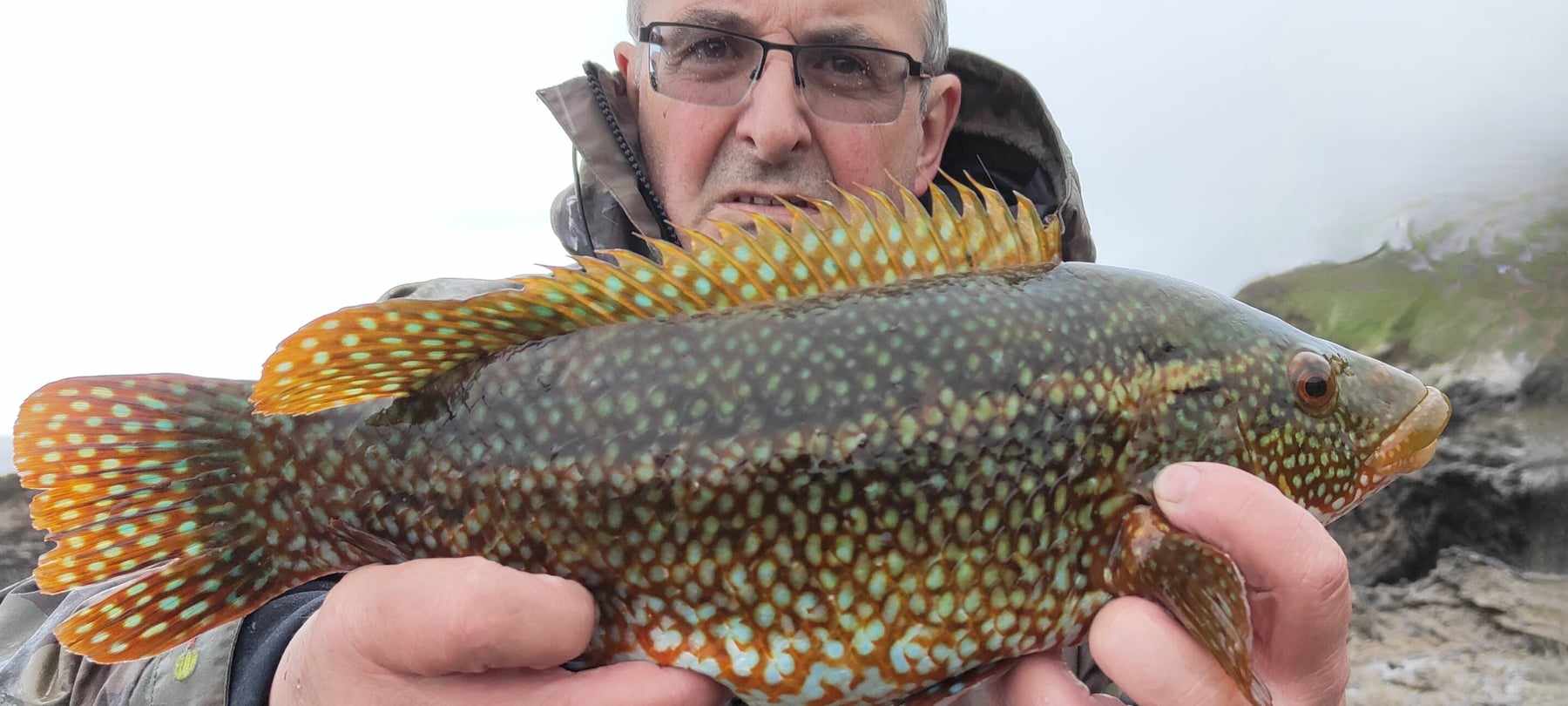
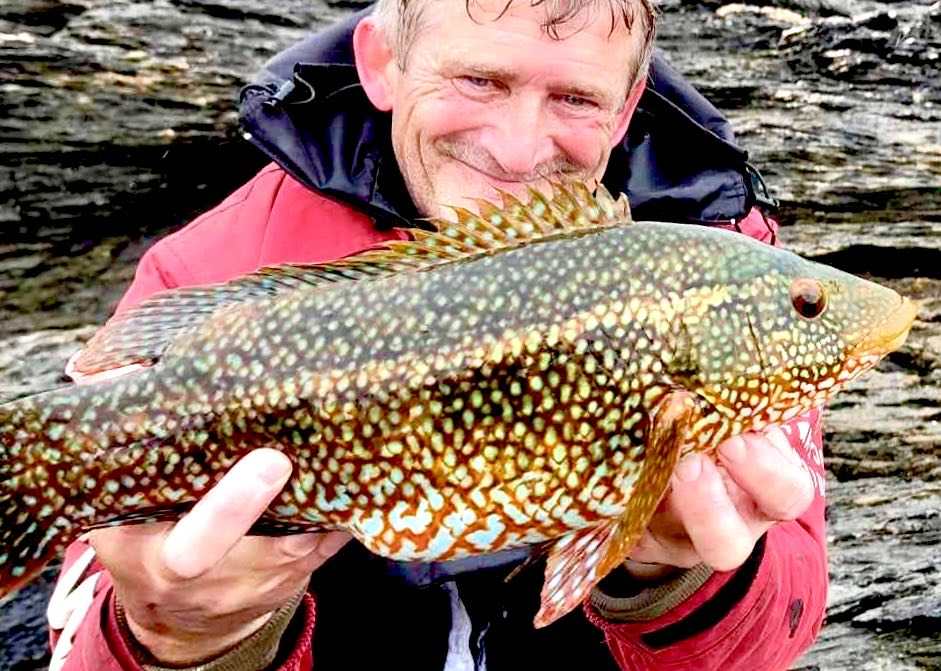
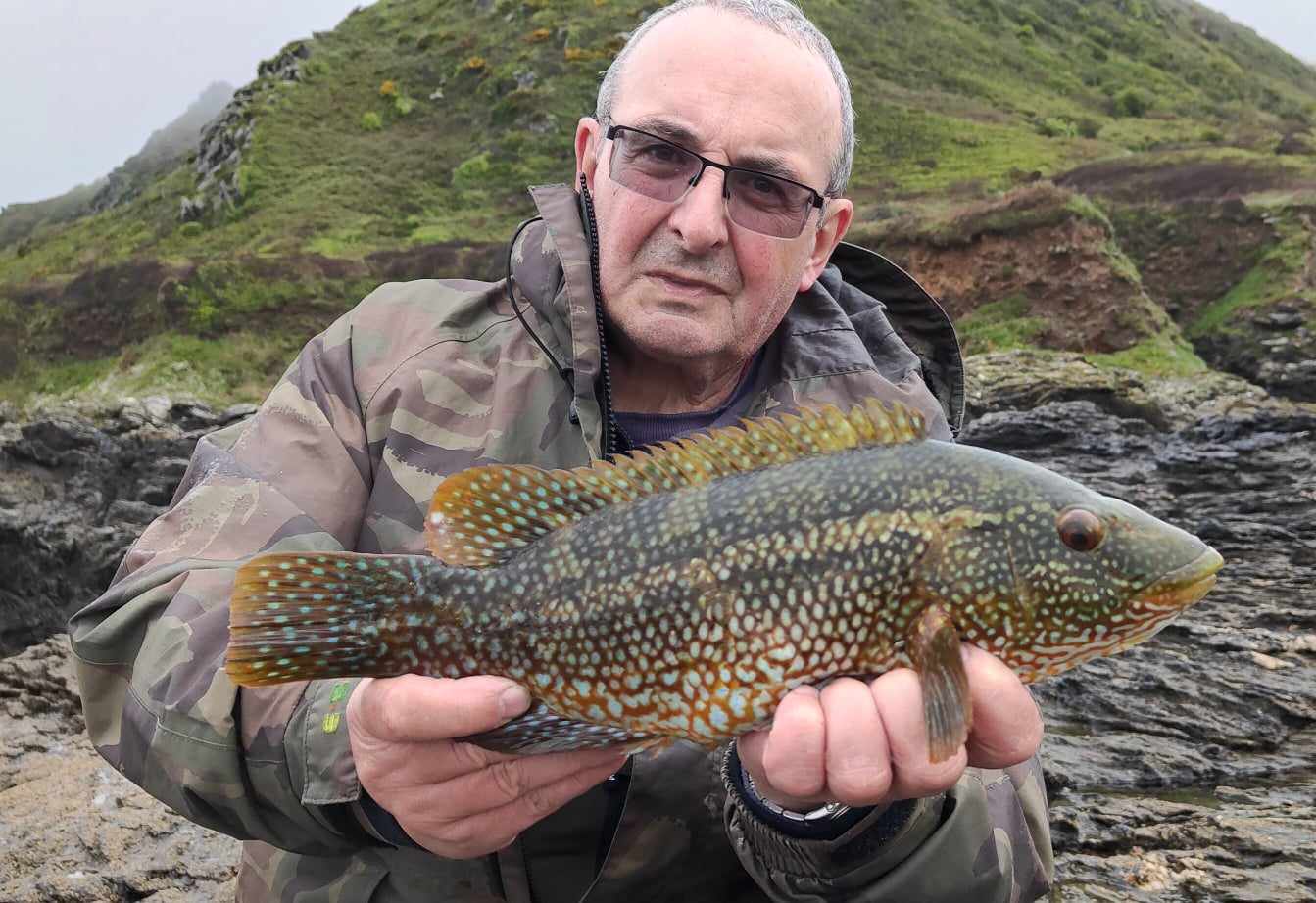
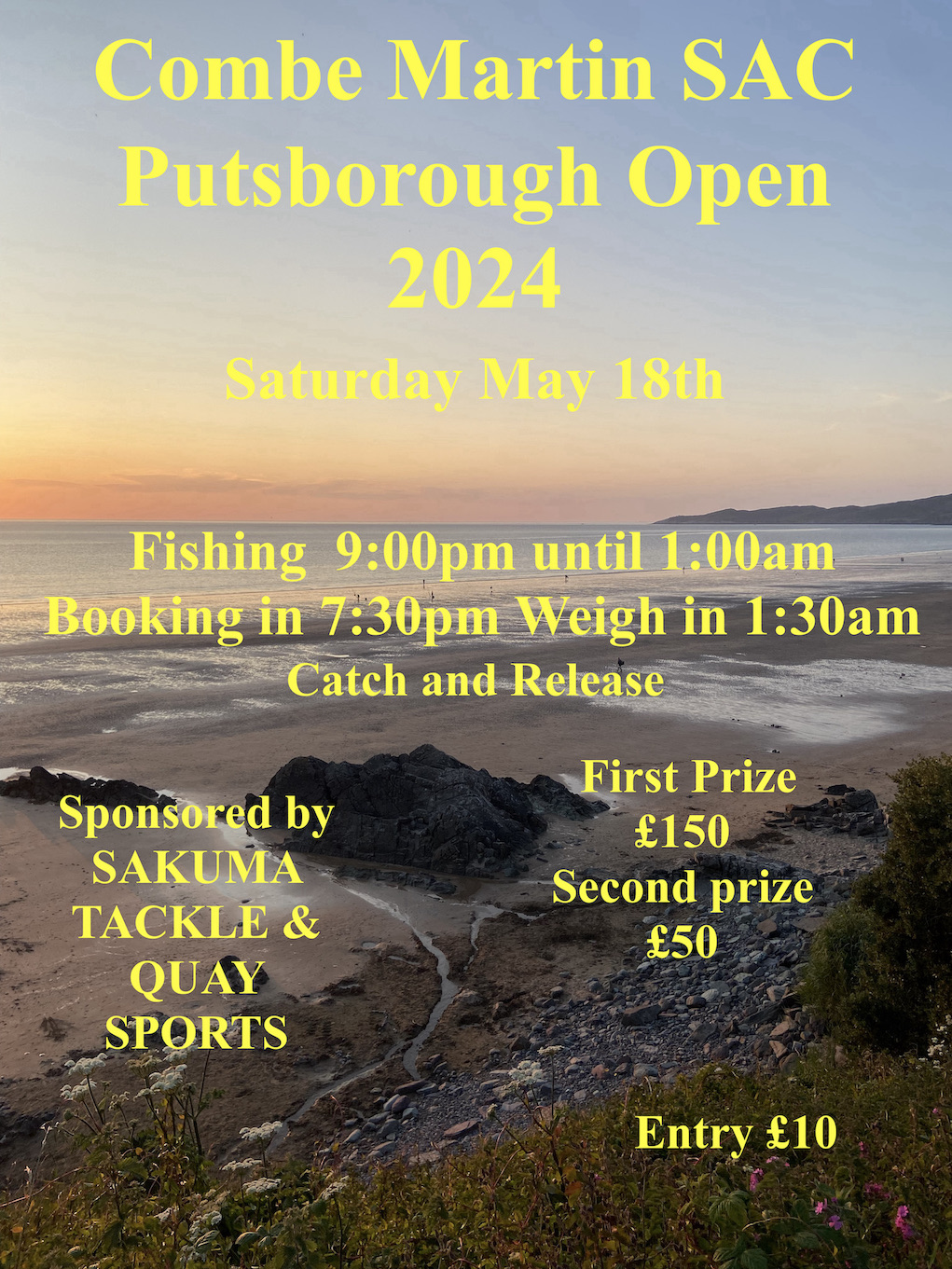
Close to a dozen Combe Martin SAC members arrived at Ilfracombe Pier to fish in the club’s latest pop-up fun and species fishing event. They were greeted by a cool and uninviting North East breeze that surprisingly failed to dent the enthusiastic vibe of those taking part.
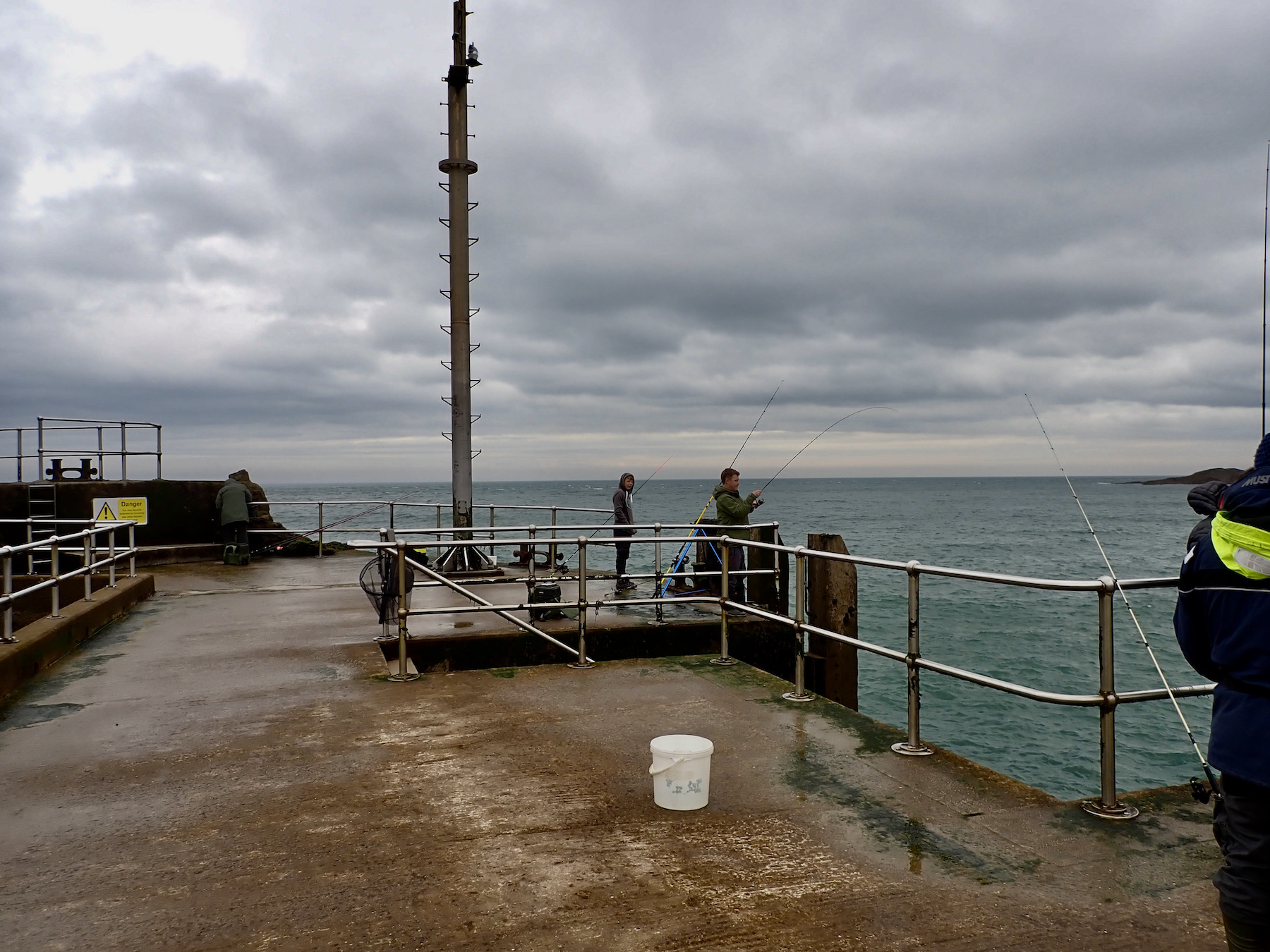
Ilfracombe Aquarium had expressed an interest in species acquisition and had given me a short list of desirables for their tanks. After the first half an hour things were going slowly and when Dan from the aquarium appeared with a bucket I was disappointed that we had nothing to offer other than a small ballan wrasse that they have an abundance of anyway.
As the tide dropped and the wind eased a few fish started to show with plenty of small wrasse. This was very much an LRF type event though there were no purists using lures only.
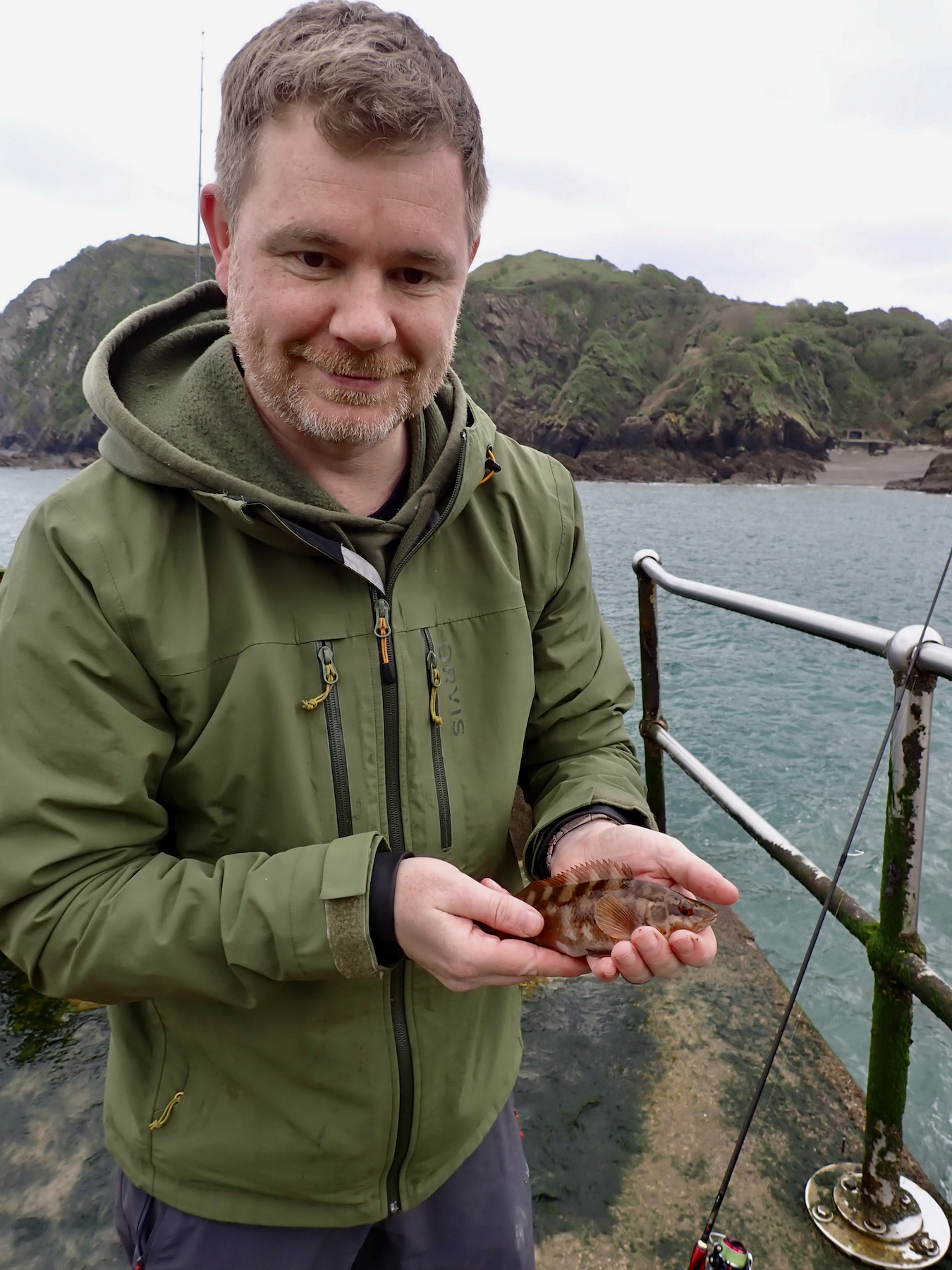
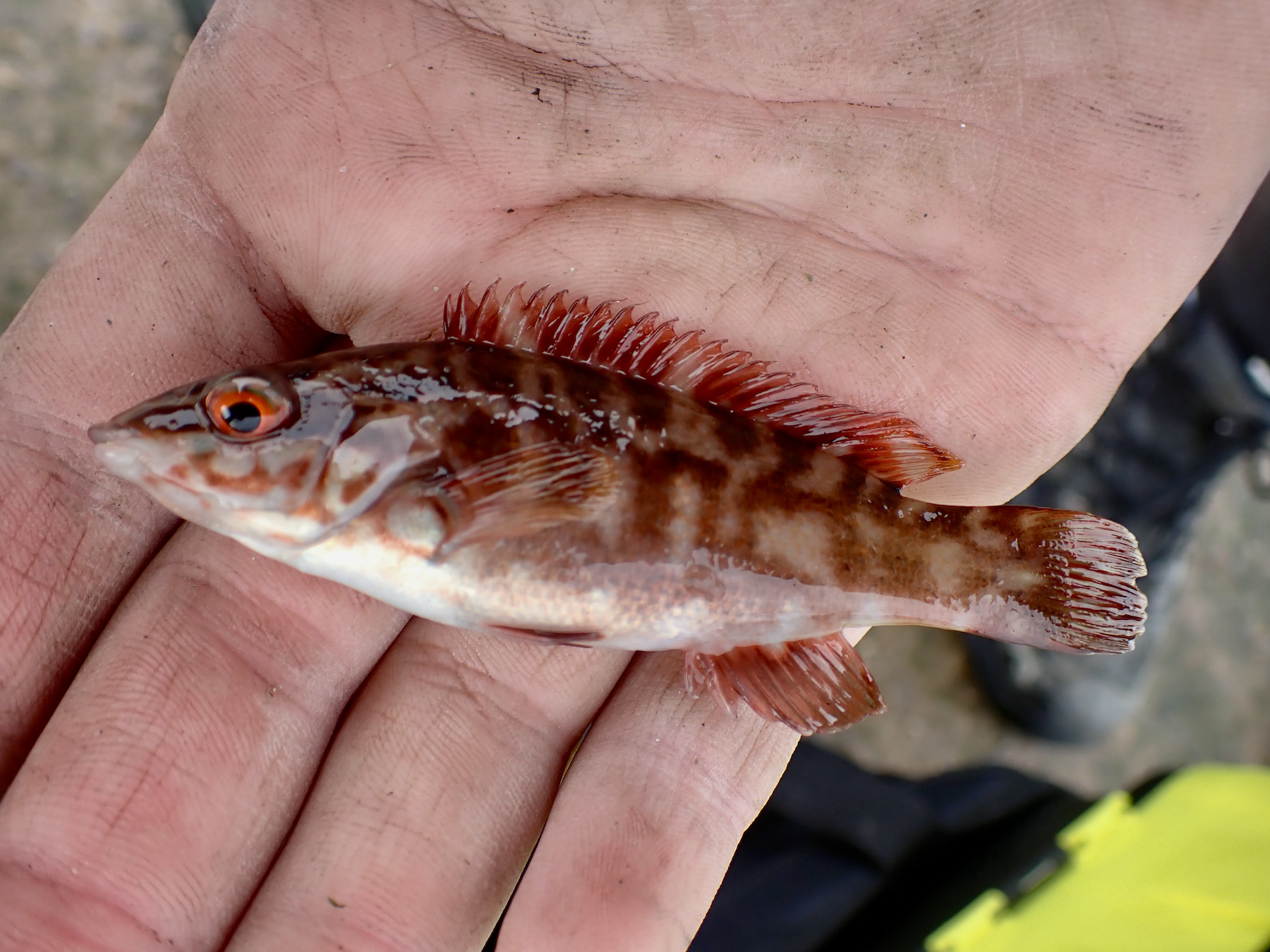
Several members embarked upon exploring the rockpools around the pier whilst Ross Stanway headed for a rocky shoreline and reports came back of a large ballan wrasse he had hooked but lost on lure fishing tactics. Daniel Welch added a rare montagus blenny to his species tally that puts him equal second to Ross Stanway on the leader board for the year so far with 23 species. Toby Basset is top with 27 species.
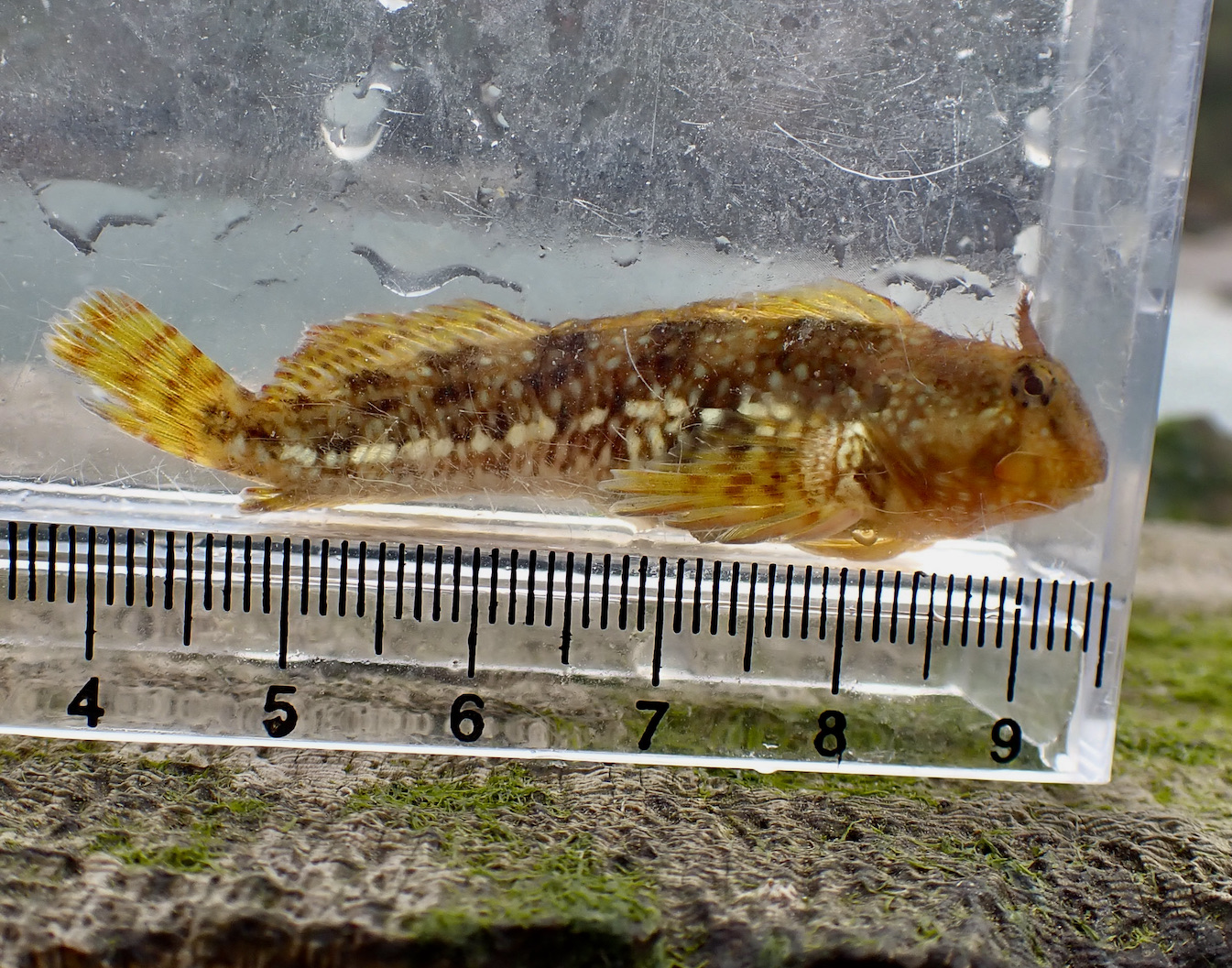
Nick joined me for a chat on the top of the old pier and was rather perplexed when he realised I was actually fishing in the tiny rock pool he was standing beside. I had already extracted a tiny blenny from the pool and was hoping for one of these rare montagus but with a size 14 hook I was probably fishing far too heavy as size 20 hooks are more appropriate.
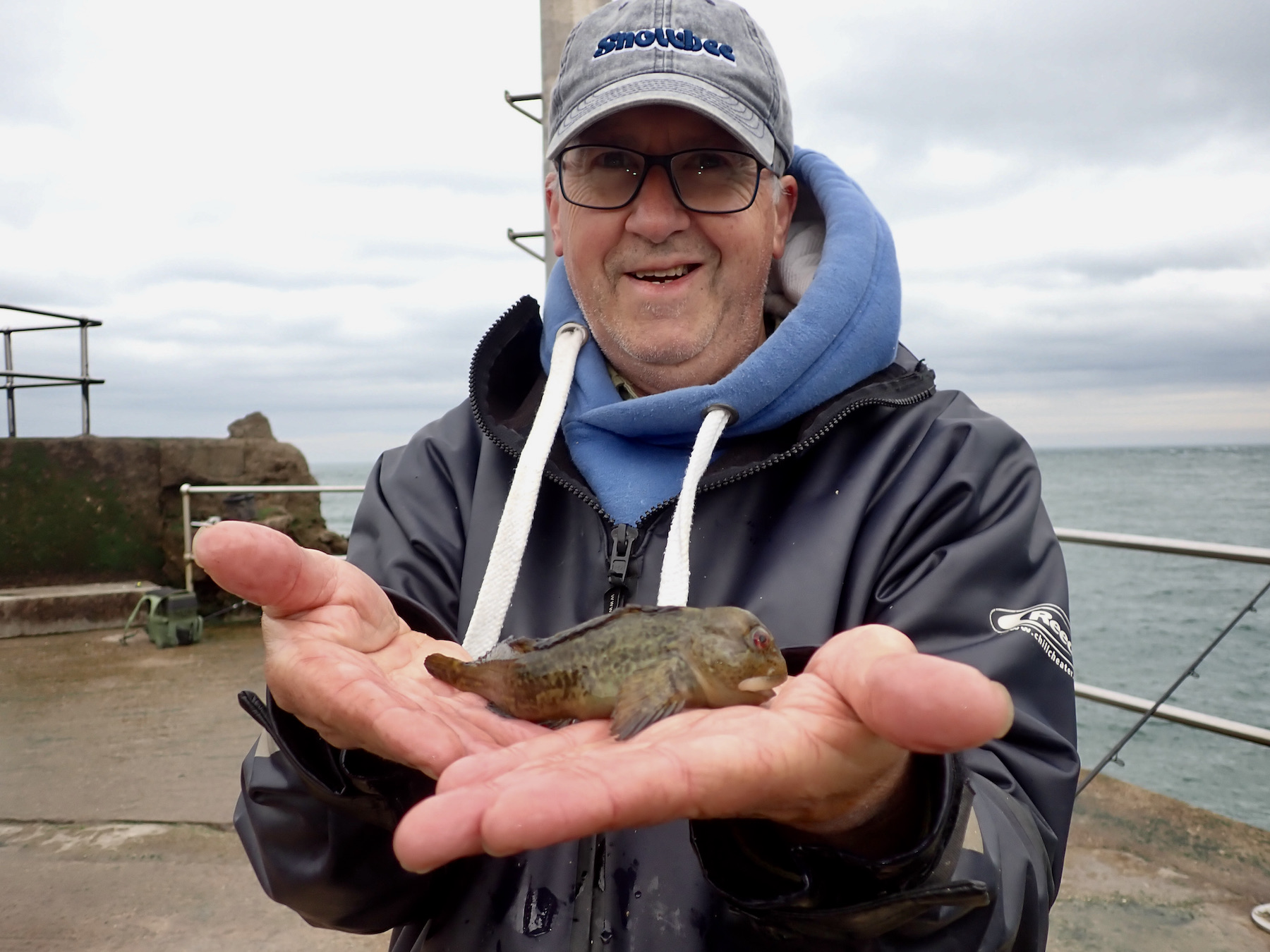
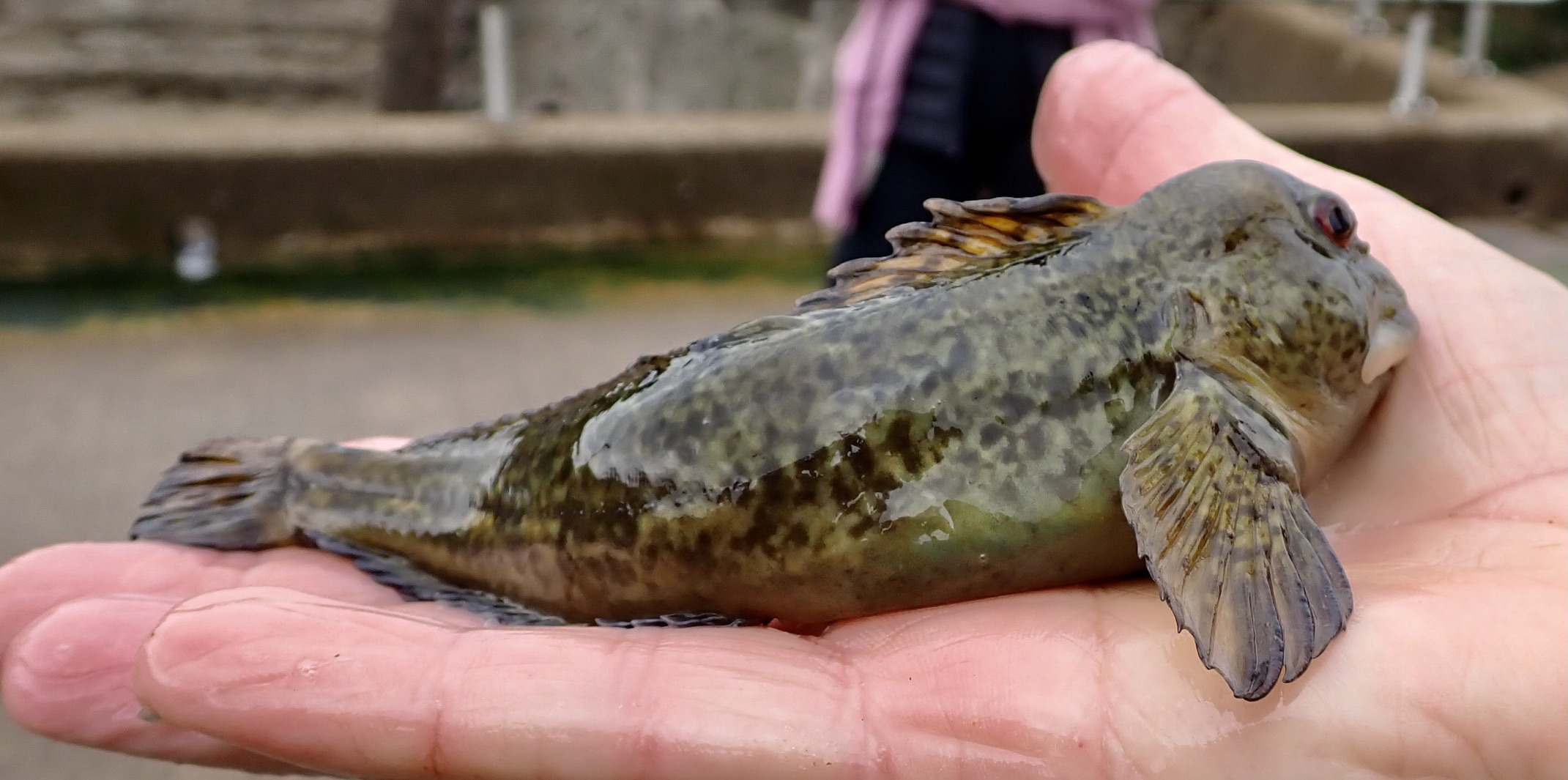
The cool breeze eased off and the sun broke through from time to time. As low water approached the water getting got increasingly murky and fish became harder to find. I caught two small pollock on ragworm which were welcomed by the aquarium.
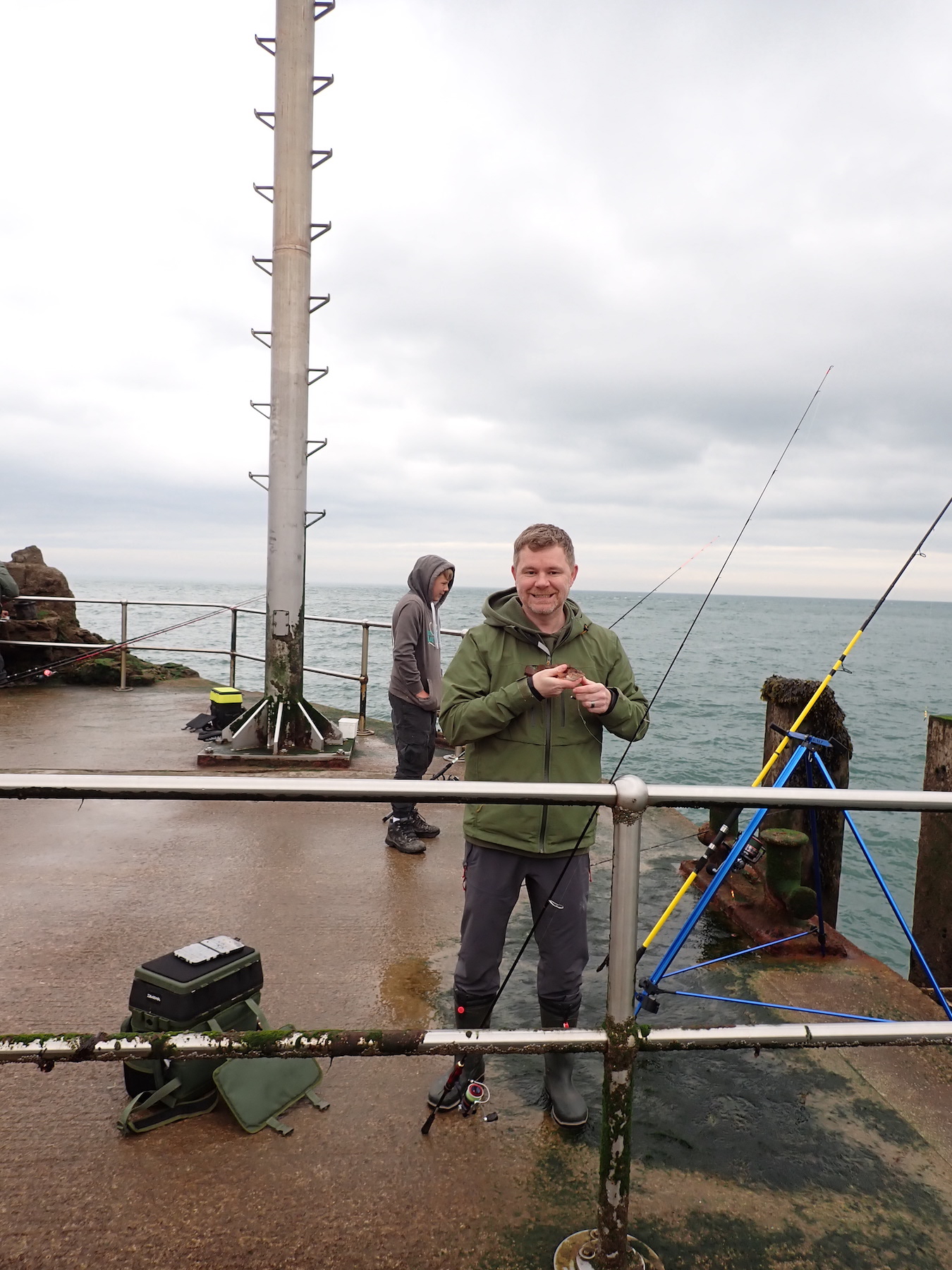
The monthly raffle was drawn out and number 18 young Lenny Lake was the winner, adding to his prize for the longest fish caught during April. The competition for May is once again the best picture. many thanks to High Street Tackle for their kind sponsorship.
The next pop up fish will be on Thursday evening in June as we have decided to alternate between Sunday mornings and Thursday evenings.
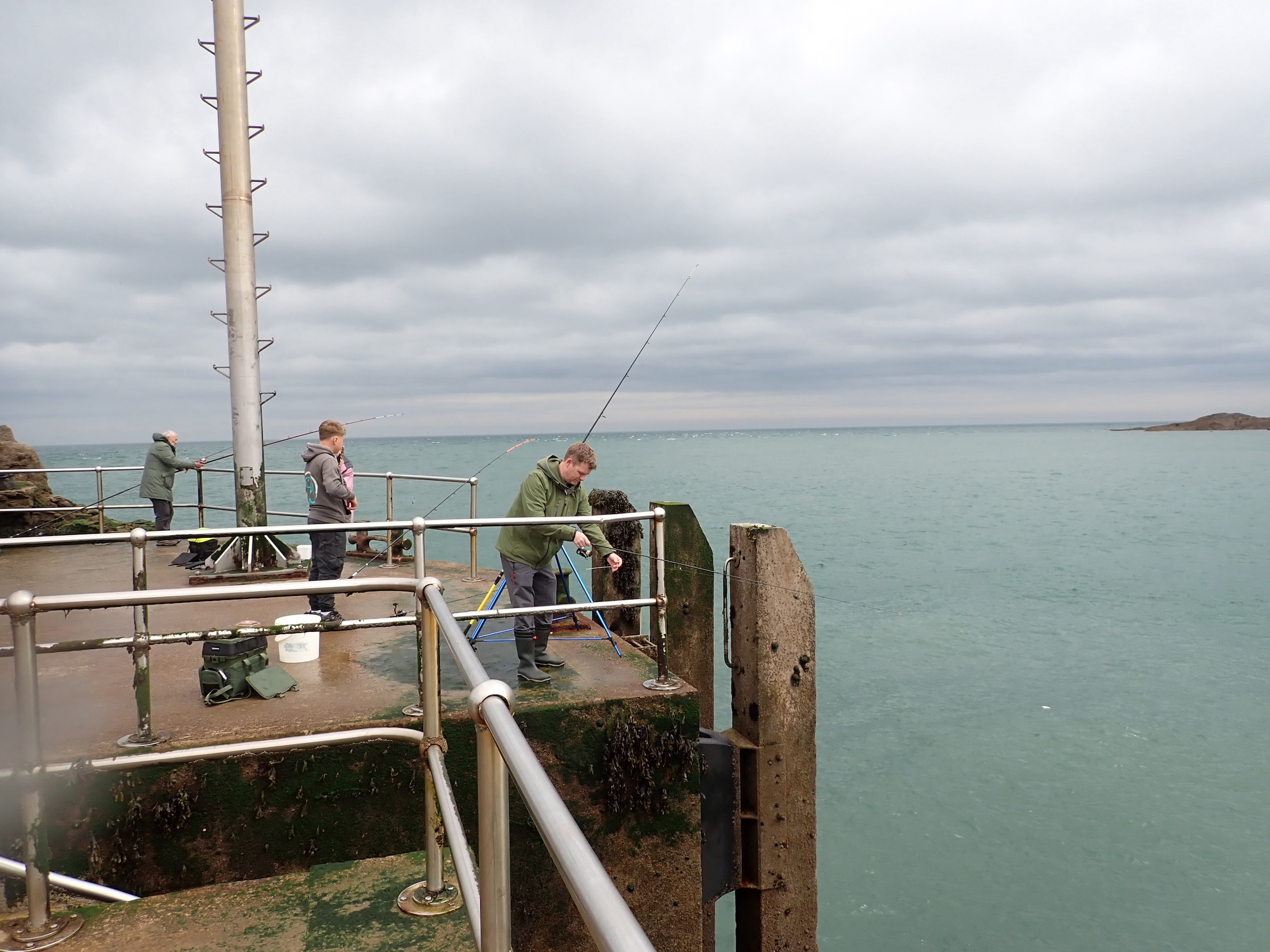
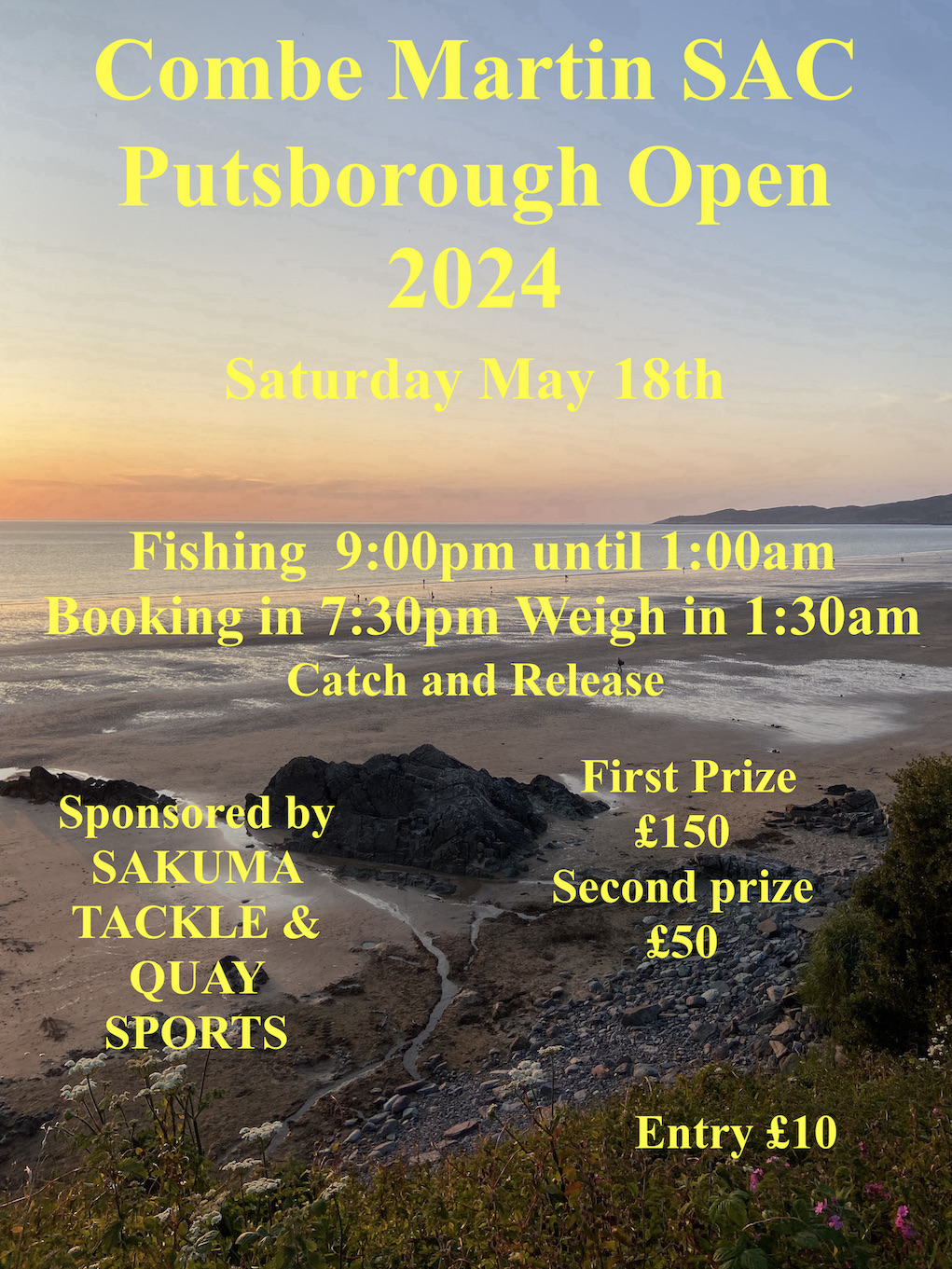
|
||
|